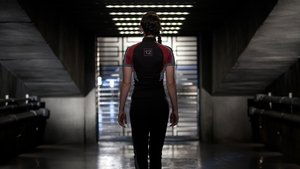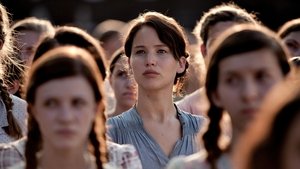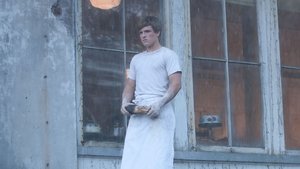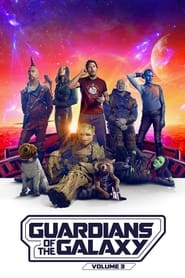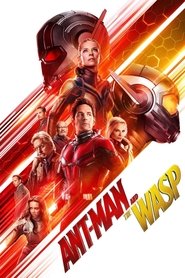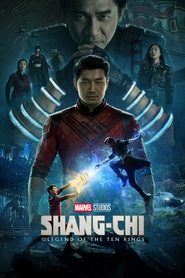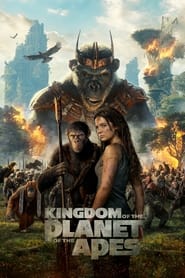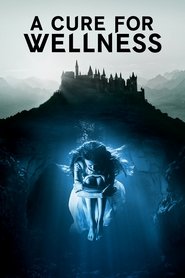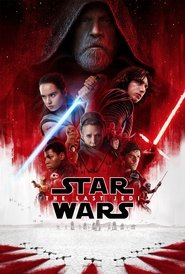In 2008, following the coattails of the successful Twilight Series, author Suzanne Collins introduced The Hunger Games to the world. The young adult novel is a post-apocalyptic adventure that swept across the globe and became an instant phenomenon. Therefore, it was no surprise in 2009 when Lions Gate Entertainment acquired the worldwide distribution rights. It was at that moment the bestselling novel began its transformation to the big screen. Three years later, and the wait is finally over.
The Hunger Games is set in Panem, a nation residing over what was once called North America. Panem consists of a wealthy capitol and twelve much poorer surrounding districts. Every year, as a punishment for a previous rebellion against the capitol, each district must offer up one randomly selected boy and girl between the ages of 12 and 18. Each of these 24 children competes in The Hunger Games, a winner takes all battle of survival.

In the 12th district, 16 year old Katniss Everdeen (played by Lawrence) volunteers as tribute after hearing her little sister's name called on the day of the selection. Katniss, along with her male counterpart from district 12 named Peeta Mellark (played by Hutcherson), embarks on a journey to the capitol in order to prepare for the violence that is sure to ensue. After her physical training and introduction to important financial sponsors, so begins the 74th annual Hunger Games and her quest for survival.
The Hunger Games is a mightily flawed, yet remarkably entertaining, adventure into the mind and creations of Suzanne Collins. Collins and the film's director, Gary Ross, develop an imaginative futuristic world that successfully hooks the audience. Along with its interesting setting, the whole concept of the Hunger Games competition immediately fascinates the viewer as well. Even though luring in the moviegoer becomes effortless, The Hunger Games struggles to connect the dots. As is usually the case with scripts adapted from novels, topics such as Katniss' father and Panem's drastically diverse class systems become presented but never developed. Perhaps, like the final Harry Potter installment, The Hunger Games would have been better served in two different pieces.
Another highly aggravating flaw comes at the hands of the film's director and its financier Lions Gate Entertainment. In an effort to maximize ticket sales, The Hunger Games is forced to cater to a PG-13 rating. In doing so, the picture in unable to push boundaries which would have easily catapulted it to more respectable heights. What is described as a brutal and violent competition becomes a sugar-coated portrayal that never feels satisfying. The lack of intensity and insanity during the feature's third act makes for an obvious theatrical let down.

Despite its ample flaws, The Hunger Games never loses its audience because of its intriguing story and talented young cast. The film serves as a solid reminder of all the well versed young actors and actresses in Hollywood. Perhaps none are more dazzling than the picture's leading star, Jennifer Lawrence. Lawrence is so mesmerizing and spectacular in all of her work, The Hunger Games included, that it's hard to believe she's only 21 years old. Suzanne Collins and Gary Ross couldn't have picked a better actress to star in their film. In addition to the work of Lawrence, excellent supporting roles are dished out by Woody Harrelson and Lenny Kravitz. Harrelson never disappoints and, although I've never been a fan of Kravitz's music, he is quickly proving his natural ability to act. Having also been a stellar addition to the cast of 2009's Precious, this is just the second film to feature Kravitz and he's been memorable in both.
The Hunger Games is a lengthy movie that offers numerous pros and cons. But most importantly, the film does its job of entertaining the audience and staying true to the novel. The Hunger Games is by no means a must see, in fact, you're probably better off sticking to the books. However, if you're eager to see the movie, then do so. Chances are you won't be disappointed.
-
 NameJennifer LawrenceCharacterKatniss Everdeen
NameJennifer LawrenceCharacterKatniss Everdeen -
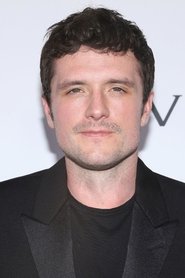 NameJosh HutchersonCharacterPeeta Mellark
NameJosh HutchersonCharacterPeeta Mellark -
 NameLiam HemsworthCharacterGale Hawthorne
NameLiam HemsworthCharacterGale Hawthorne -
 NameWoody HarrelsonCharacterHaymitch Abernathy
NameWoody HarrelsonCharacterHaymitch Abernathy -
 NameElizabeth BanksCharacterEffie Trinket
NameElizabeth BanksCharacterEffie Trinket -
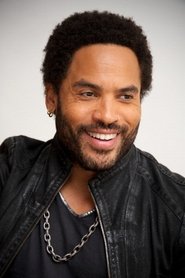 NameLenny KravitzCharacterCinna
NameLenny KravitzCharacterCinna -
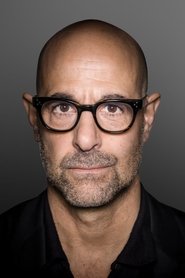 NameStanley TucciCharacterCaesar Flickerman
NameStanley TucciCharacterCaesar Flickerman -
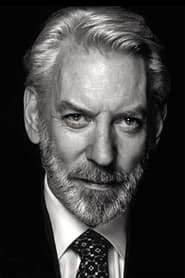 NameDonald SutherlandCharacterPresident Coriolanus Snow
NameDonald SutherlandCharacterPresident Coriolanus Snow -
 NameWes BentleyCharacterSeneca Crane
NameWes BentleyCharacterSeneca Crane -
 NameToby JonesCharacterClaudius Templesmith
NameToby JonesCharacterClaudius Templesmith -
 NameAlexander LudwigCharacterCato
NameAlexander LudwigCharacterCato -
 NameIsabelle FuhrmanCharacterClove
NameIsabelle FuhrmanCharacterClove -
 NameAmandla StenbergCharacterRue
NameAmandla StenbergCharacterRue -
 NameWillow ShieldsCharacterPrimrose Everdeen
NameWillow ShieldsCharacterPrimrose Everdeen -
 NameSandra Ellis LaffertyCharacterHob Vendor
NameSandra Ellis LaffertyCharacterHob Vendor -
 NamePaula MalcomsonCharacterKatniss' Mother
NamePaula MalcomsonCharacterKatniss' Mother -
 NameRhoda GriffisCharacterRegistration Woman
NameRhoda GriffisCharacterRegistration Woman -
 NameSandino Moya-SmithCharacterPropaganda Film Tribute
NameSandino Moya-SmithCharacterPropaganda Film Tribute -
 NameRaiko BowmanCharacterPeeta's Mother
NameRaiko BowmanCharacterPeeta's Mother -
 NameDwayne BoydCharacterPeacekeeper #1
NameDwayne BoydCharacterPeacekeeper #1 -
 NameAnthony ReynoldsCharacterPeacekeeper #2
NameAnthony ReynoldsCharacterPeacekeeper #2 -
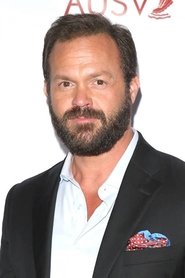 NameJudd LormandCharacterPeacekeeper #3
NameJudd LormandCharacterPeacekeeper #3 -
 NameKimiko GelmanCharacterVenia
NameKimiko GelmanCharacterVenia -
 NameNelson AscencioCharacterFlavius
NameNelson AscencioCharacterFlavius -
 NameBrooke BundyCharacterOctavia
NameBrooke BundyCharacterOctavia -
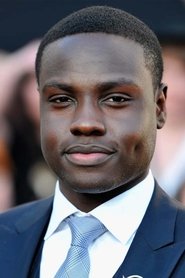 NameDayo OkeniyiCharacterThresh
NameDayo OkeniyiCharacterThresh -
 NameLeven RambinCharacterGlimmer
NameLeven RambinCharacterGlimmer -
 NameJack QuaidCharacterMarvel
NameJack QuaidCharacterMarvel -
 NameLatarsha RoseCharacterPortia
NameLatarsha RoseCharacterPortia -
 NameIan NelsonCharacterTribute Boy District 3
NameIan NelsonCharacterTribute Boy District 3 -
 NameKalia PrescottCharacterTribute Girl District 3
NameKalia PrescottCharacterTribute Girl District 3 -
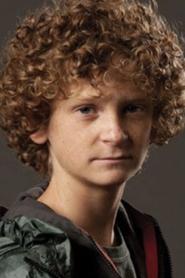 NameEthan JamiesonCharacterTribute Boy District 4
NameEthan JamiesonCharacterTribute Boy District 4 -
 NameJacqueline EmersonCharacterFox Face
NameJacqueline EmersonCharacterFox Face -
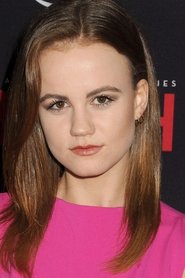 NameMackenzie LintzCharacterTribute Girl District 8
NameMackenzie LintzCharacterTribute Girl District 8 -
 NameImanol Yepez-FriasCharacterTribute Boy District 9
NameImanol Yepez-FriasCharacterTribute Boy District 9 -
 NameAnnie ThurmanCharacterTribute Girl District 9
NameAnnie ThurmanCharacterTribute Girl District 9 -
 NameDakota HoodCharacterTribute Girl District 10
NameDakota HoodCharacterTribute Girl District 10 -
 NameAmber ChaneyCharacterAvox Girl
NameAmber ChaneyCharacterAvox Girl -
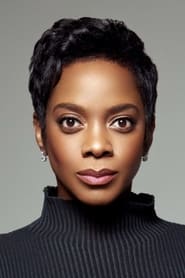 NameKaran KendrickCharacterAtala
NameKaran KendrickCharacterAtala -
 NameShane BissellCharacterBirthday Boy
NameShane BissellCharacterBirthday Boy -
 NameKate KneelandCharacterHovercraft Tech
NameKate KneelandCharacterHovercraft Tech -
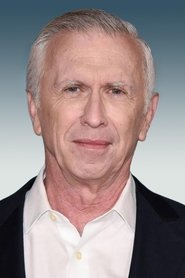 NameSteve CoulterCharacterGame Center Tech #1
NameSteve CoulterCharacterGame Center Tech #1 -
 NameSharon ConleyCharacterGame Center Tech #2
NameSharon ConleyCharacterGame Center Tech #2 -
 NameTim TaylorCharacterGame Center Tech #3
NameTim TaylorCharacterGame Center Tech #3 -
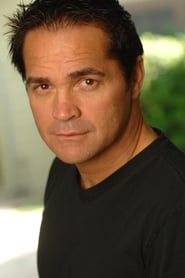 NameJohn RossCharacterGame Center Tech #4
NameJohn RossCharacterGame Center Tech #4 -
 NamePhillip Troy LingerCharacterKatniss' Father
NamePhillip Troy LingerCharacterKatniss' Father -
 NameJulie IveyCharacterMartha (uncredited)
NameJulie IveyCharacterMartha (uncredited) -
 NameMark MeekinsCharacterResident (uncredited)
NameMark MeekinsCharacterResident (uncredited) -
 NameJeremy MarinasCharacterTribute Boy District 10 (uncredited)
NameJeremy MarinasCharacterTribute Boy District 10 (uncredited) -
 NameKelly Lynn ReiterCharacterDistrict 12 Tribute Girl (uncredited)
NameKelly Lynn ReiterCharacterDistrict 12 Tribute Girl (uncredited) -
 NameRachel HugginsCharacterCapital Extra
NameRachel HugginsCharacterCapital Extra
-
 NameGary RossJobDirector
NameGary RossJobDirector -
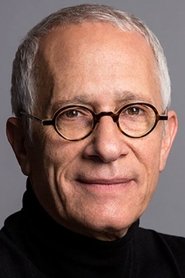 NameJames Newton HowardJobOriginal Music Composer
NameJames Newton HowardJobOriginal Music Composer -
 NameRaphael ValleJobVisual Effects Compositor
NameRaphael ValleJobVisual Effects Compositor -
 NameEvelyn RoachJobHairstylist
NameEvelyn RoachJobHairstylist -
 NameJason DunnJobKey Rigging Grip
NameJason DunnJobKey Rigging Grip -
 NameJay SmithJobSet Dresser
NameJay SmithJobSet Dresser -
 NameMary EverettJobHairstylist
NameMary EverettJobHairstylist -
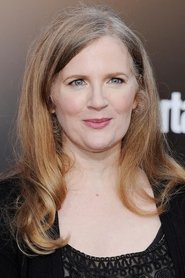 NameSuzanne CollinsJobNovel
NameSuzanne CollinsJobNovel -
 NameGary RossJobScreenplay
NameGary RossJobScreenplay -
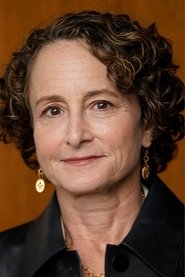 NameNina JacobsonJobProducer
NameNina JacobsonJobProducer -
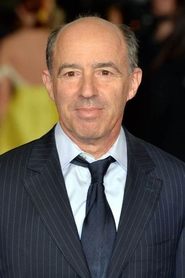 NameJon KilikJobProducer
NameJon KilikJobProducer -
 NameRobin BissellJobExecutive Producer
NameRobin BissellJobExecutive Producer -
 NameSuzanne CollinsJobExecutive Producer
NameSuzanne CollinsJobExecutive Producer -
 NameLouise Rosner-MeyerJobExecutive Producer
NameLouise Rosner-MeyerJobExecutive Producer -
 NameTom SternJobDirector of Photography
NameTom SternJobDirector of Photography -
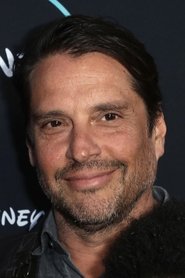 NamePhilip MessinaJobProduction Design
NamePhilip MessinaJobProduction Design -
 NameStephen MirrioneJobEditor
NameStephen MirrioneJobEditor -
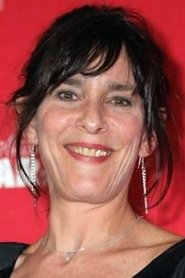 NameJuliette WelflingJobEditor
NameJuliette WelflingJobEditor -
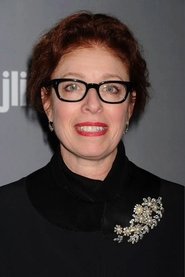 NameJudianna MakovskyJobCostume Design
NameJudianna MakovskyJobCostume Design -
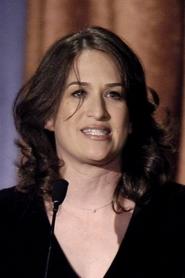 NameDebra ZaneJobCasting
NameDebra ZaneJobCasting -
 NameRobert FechtmanJobArt Direction
NameRobert FechtmanJobArt Direction -
 NamePaul RichardsJobArt Direction
NamePaul RichardsJobArt Direction -
 NameLarry DiasJobSet Decoration
NameLarry DiasJobSet Decoration -
 NameVe NeillJobMakeup Department Head
NameVe NeillJobMakeup Department Head -
 NameJoyce GilliardJobHairstylist
NameJoyce GilliardJobHairstylist -
 NameAlex PoeiJobAnimation
NameAlex PoeiJobAnimation -
 NameKalia PrescottJobStunts
NameKalia PrescottJobStunts -
 NameT Bone BurnettJobExecutive Music Producer
NameT Bone BurnettJobExecutive Music Producer -
 NameEddie J. FernandezJobStunts
NameEddie J. FernandezJobStunts -
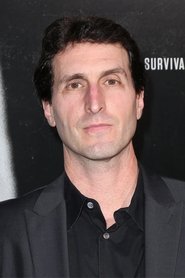 NameBilly RayJobScreenplay
NameBilly RayJobScreenplay -
 NameSuzanne CollinsJobScreenplay
NameSuzanne CollinsJobScreenplay -
 NameChantal FeghaliJobCo-Executive Producer
NameChantal FeghaliJobCo-Executive Producer -
 NameAldric La'Auli PorterJobCo-Producer
NameAldric La'Auli PorterJobCo-Producer -
 NameMartin CohenJobCo-Producer
NameMartin CohenJobCo-Producer -
 NameLouis PhillipsJobCo-Producer
NameLouis PhillipsJobCo-Producer -
 NameBryan UnkelessJobCo-Producer
NameBryan UnkelessJobCo-Producer -
 NameDiana AlvarezJobCo-Producer
NameDiana AlvarezJobCo-Producer -
 NameLon BenderJobSound Designer
NameLon BenderJobSound Designer -
 NameLouise Rosner-MeyerJobUnit Production Manager
NameLouise Rosner-MeyerJobUnit Production Manager -
 NameDonna SloanJobExecutive In Charge Of Production
NameDonna SloanJobExecutive In Charge Of Production -
 NameChad StahelskiJobStunt Coordinator
NameChad StahelskiJobStunt Coordinator -
 NameAllan PoppletonJobStunt Coordinator
NameAllan PoppletonJobStunt Coordinator -
 NameLindsey MoranJobAssistant Art Director
NameLindsey MoranJobAssistant Art Director -
 NamePatrick LoungwayJobAdditional Photography
NamePatrick LoungwayJobAdditional Photography -
 NameMichael KellerJobSound Re-Recording Mixer
NameMichael KellerJobSound Re-Recording Mixer -
 NameMichael Prestwood SmithJobSound Re-Recording Mixer
NameMichael Prestwood SmithJobSound Re-Recording Mixer -
 NameChristopher S. CappJobEditor
NameChristopher S. CappJobEditor -
 NameDawn GilliamJobScript Supervisor
NameDawn GilliamJobScript Supervisor -
 NameDouglas DresserJobProduction Supervisor
NameDouglas DresserJobProduction Supervisor -
 NameS. Todd ChristensenJobLocation Manager
NameS. Todd ChristensenJobLocation Manager -
 NameLinda FlowersJobHair Department Head
NameLinda FlowersJobHair Department Head -
 NameEric HanceJob3D Supervisor
NameEric HanceJob3D Supervisor -
 NameColin BradyJobAnimation Supervisor
NameColin BradyJobAnimation Supervisor -
 NameDino AthanassiouJobAnimation Supervisor
NameDino AthanassiouJobAnimation Supervisor -
 NameKristin SolidJobAnimation Supervisor
NameKristin SolidJobAnimation Supervisor -
 NameDaniel JeannetteJobAnimation Supervisor
NameDaniel JeannetteJobAnimation Supervisor -
 NameWayne LewisJobAnimation Supervisor
NameWayne LewisJobAnimation Supervisor -
 NameCurtis EdwardsJobCG Supervisor
NameCurtis EdwardsJobCG Supervisor -
 NameTodd MesherJobDigital Effects Supervisor
NameTodd MesherJobDigital Effects Supervisor -
 NameBrennan PrevattJobDigital Effects Supervisor
NameBrennan PrevattJobDigital Effects Supervisor -
 NameMark RodahlJobDigital Effects Supervisor
NameMark RodahlJobDigital Effects Supervisor -
 NameAmy SpannerJobVisual Effects Coordinator
NameAmy SpannerJobVisual Effects Coordinator -
 NameEric WitheeJobVisual Effects Coordinator
NameEric WitheeJobVisual Effects Coordinator -
 NameSean RourkeJobVisual Effects Editor
NameSean RourkeJobVisual Effects Editor -
 NameShawn BroesJobVisual Effects Editor
NameShawn BroesJobVisual Effects Editor -
 NameSean LahiffJobVisual Effects Editor
NameSean LahiffJobVisual Effects Editor -
 NameAlex MeddickJobVisual Effects Editor
NameAlex MeddickJobVisual Effects Editor -
 NameBen WhiteJobSet Production Assistant
NameBen WhiteJobSet Production Assistant -
 NameBen HoweJobPropmaker
NameBen HoweJobPropmaker -
 NameJohn CollinsJobSupervising Art Director
NameJohn CollinsJobSupervising Art Director -
 NameKarin SilvestriJobStunts
NameKarin SilvestriJobStunts -
 NameWalter KieslingJobSpecial Effects Technician
NameWalter KieslingJobSpecial Effects Technician -
 NameKathy W. EstocinJobHairstylist
NameKathy W. EstocinJobHairstylist -
 NameKimberly Shannon MurphyJobStunts
NameKimberly Shannon MurphyJobStunts -
 NameDhamarata 'G' DhiensuwanaJobRigging Grip
NameDhamarata 'G' DhiensuwanaJobRigging Grip -
 NameLisa Ann WilsonJobIntern
NameLisa Ann WilsonJobIntern -
 NameHarry YoonJobVisual Effects Assistant Editor
NameHarry YoonJobVisual Effects Assistant Editor -
 NameJoe ValeraJobStunts
NameJoe ValeraJobStunts -
 NameThomas BremerJobCG Animator
NameThomas BremerJobCG Animator -
 NameAldric La'Auli PorterJobFirst Assistant Director
NameAldric La'Auli PorterJobFirst Assistant Director -
 NameJohn R. SaundersJobSecond Assistant Director
NameJohn R. SaundersJobSecond Assistant Director -
 NameJon ValeraJobFight Choreographer
NameJon ValeraJobFight Choreographer -
 NameRenae MoneymakerJobStunt Double
NameRenae MoneymakerJobStunt Double -
 NameKarin SilvestriJobStunt Double
NameKarin SilvestriJobStunt Double -
 NameRalf KochJobStunts
NameRalf KochJobStunts -
 NameNatalie PadillaJobStunts
NameNatalie PadillaJobStunts -
 NameJade QuonJobStunts
NameJade QuonJobStunts -
 NameTara MackenJobStunts
NameTara MackenJobStunts -
 NameChris MarkJobStunts
NameChris MarkJobStunts -
 NameAshton MoioJobStunts
NameAshton MoioJobStunts -
 NameKara PetersonJobStunts
NameKara PetersonJobStunts -
 NameSam LyJobStunts
NameSam LyJobStunts -
 NameLeigha HancockJobStunts
NameLeigha HancockJobStunts -
 NameSam TanJobStunts
NameSam TanJobStunts -
 NameJeremy MarinasJobStunts
NameJeremy MarinasJobStunts -
 NameAnis CheurfaJobStunts
NameAnis CheurfaJobStunts -
 NameScott CosgroveJobStunts
NameScott CosgroveJobStunts -
 NameLateef CrowderJobStunts
NameLateef CrowderJobStunts -
 NameEddie FernandezJobStunts
NameEddie FernandezJobStunts -
 NameKyle GardinerJobStunts
NameKyle GardinerJobStunts -
 NameDaniel GrahamJobStunts
NameDaniel GrahamJobStunts -
 NameKevin HallJobStunts
NameKevin HallJobStunts -
 NameRaion HillJobStunts
NameRaion HillJobStunts -
 NameMike HugghinsJobStunts
NameMike HugghinsJobStunts -
 NameVictor LópezJobStunts
NameVictor LópezJobStunts -
 NameJared LosanoJobStunts
NameJared LosanoJobStunts -
 NameDino MuccioJobStunts
NameDino MuccioJobStunts -
 NameBrian MunceJobStunts
NameBrian MunceJobStunts -
 NameCasey O'NeillJobStunts
NameCasey O'NeillJobStunts -
 NameTim J. SmithJobStunts
NameTim J. SmithJobStunts -
 NameLarnell StovallJobStunts
NameLarnell StovallJobStunts -
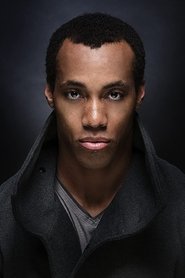 NameAaron ToneyJobStunts
NameAaron ToneyJobStunts -
 NameTina Fuchs WannerJobStunts
NameTina Fuchs WannerJobStunts -
 NameJoe Nin WilliamsJobStunts
NameJoe Nin WilliamsJobStunts -
 NameJohn GilbertJobStunts
NameJohn GilbertJobStunts -
 NameMark RaynerJobStunts
NameMark RaynerJobStunts -
 NameJustin YuJobStunts
NameJustin YuJobStunts -
 NameLe Dell PrestonJobStunts
NameLe Dell PrestonJobStunts -
 NameKenneth SheltonJobStunts
NameKenneth SheltonJobStunts -
 NameRoy BurgerJobStunts
NameRoy BurgerJobStunts -
 NameRyon MarshallJobStunts
NameRyon MarshallJobStunts -
 NameSteven OvermanJobStunts
NameSteven OvermanJobStunts -
 NameTom SheltonJobStunts
NameTom SheltonJobStunts -
 NameBoots SoutherlandJobStunts
NameBoots SoutherlandJobStunts -
 NameDuane ManwillerJobSteadicam Operator
NameDuane ManwillerJobSteadicam Operator -
 NameDuane ManwillerJobThird Assistant "A" Camera
NameDuane ManwillerJobThird Assistant "A" Camera -
 NameJames W. AptedJobFirst Assistant "A" Camera
NameJames W. AptedJobFirst Assistant "A" Camera -
 NameMax DeleoJobSecond Assistant "B" Camera
NameMax DeleoJobSecond Assistant "B" Camera -
 NameMaurice K. McGuireJobThird Assistant "B" Camera
NameMaurice K. McGuireJobThird Assistant "B" Camera -
 NameJohn KairisJobFirst Assistant "B" Camera
NameJohn KairisJobFirst Assistant "B" Camera -
 NameTony NagyJobFirst Assistant "B" Camera
NameTony NagyJobFirst Assistant "B" Camera -
 NameWalrus "Waterslide" HowardJobSecond Assistant "B" Camera
NameWalrus "Waterslide" HowardJobSecond Assistant "B" Camera -
 NameRylan AkamaJobSecond Assistant "B" Camera
NameRylan AkamaJobSecond Assistant "B" Camera -
 NameRobby BaumgartnerJobSecond Unit Director of Photography
NameRobby BaumgartnerJobSecond Unit Director of Photography -
 NameRobby BaumgartnerJobThird Assistant "C" Camera
NameRobby BaumgartnerJobThird Assistant "C" Camera -
 NameSteven CuevaJobFirst Assistant "C" Camera
NameSteven CuevaJobFirst Assistant "C" Camera -
 NameJimmy E. JensenJobFirst Assistant "C" Camera
NameJimmy E. JensenJobFirst Assistant "C" Camera -
 NameMichael McCullyJobSecond Assistant "C" Camera
NameMichael McCullyJobSecond Assistant "C" Camera -
 NameBrent EganJobSecond Assistant "C" Camera
NameBrent EganJobSecond Assistant "C" Camera -
 NameBrian MatsumuraJobFilm Processor
NameBrian MatsumuraJobFilm Processor -
 NameMurray CloseJobStill Photographer
NameMurray CloseJobStill Photographer -
 NameRichard B. MolinaJobFirst Assistant Editor
NameRichard B. MolinaJobFirst Assistant Editor -
 NamePatrick J. SmithJobAssistant Editor
NamePatrick J. SmithJobAssistant Editor -
 NameAlexandra N. GonzalezJobPost Production Coordinator
NameAlexandra N. GonzalezJobPost Production Coordinator -
 NameCarl RudisillJobProduction Sound Mixer
NameCarl RudisillJobProduction Sound Mixer -
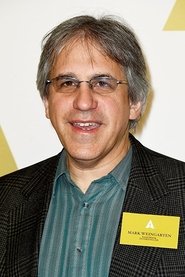 NameMark WeingartenJobProduction Sound Mixer
NameMark WeingartenJobProduction Sound Mixer -
 NameChris MainJobBoom Operator
NameChris MainJobBoom Operator -
 NameDavid M. RobertsJobBoom Operator
NameDavid M. RobertsJobBoom Operator -
 NameDavid DeeverJobVideo Assist Operator
NameDavid DeeverJobVideo Assist Operator -
 NameJohn SanchezJobProduction Coordinator
NameJohn SanchezJobProduction Coordinator -
 NameCatie CullariJobAssistant Production Coordinator
NameCatie CullariJobAssistant Production Coordinator -
 NameApril A. JanowJobProduction Controller
NameApril A. JanowJobProduction Controller -
 NameDax A. CuestaJobFirst Assistant Accountant
NameDax A. CuestaJobFirst Assistant Accountant -
 NameDavid M. AtkinsonJobFirst Assistant Accountant
NameDavid M. AtkinsonJobFirst Assistant Accountant -
 NameKristen PortanovaJobSecond Assistant Accountant
NameKristen PortanovaJobSecond Assistant Accountant -
 NameTara Hummingbird GreyJobSecond Assistant Accountant
NameTara Hummingbird GreyJobSecond Assistant Accountant -
 NamePenni SmithJobPayroll Accountant
NamePenni SmithJobPayroll Accountant -
 NameCasey CarmichaelJobPayroll Accountant
NameCasey CarmichaelJobPayroll Accountant -
 NameAllyson R.A. HowardJobAccounting Clerk Assistant
NameAllyson R.A. HowardJobAccounting Clerk Assistant -
 NameAndrea BraswellJobAccountant
NameAndrea BraswellJobAccountant -
 NameAndrea BraswellJobAccountant
NameAndrea BraswellJobAccountant -
 NameEmily RiceJobPost Production Assistant
NameEmily RiceJobPost Production Assistant -
 NameLiam HearneJobPost Production Accountant
NameLiam HearneJobPost Production Accountant -
 NameAmanda SuttonJobPost Production Accountant
NameAmanda SuttonJobPost Production Accountant -
 NameDoug MackenzieJobAssistant Location Manager
NameDoug MackenzieJobAssistant Location Manager -
 NameEllen PfirrmannJobAssistant Location Manager
NameEllen PfirrmannJobAssistant Location Manager -
 NameJason KingJobAssistant Location Manager
NameJason KingJobAssistant Location Manager -
 NameJohn NasrawayJobSecond Second Assistant Director
NameJohn NasrawayJobSecond Second Assistant Director -
 NameWill CaseyJobUnit Publicist
NameWill CaseyJobUnit Publicist -
 NameGuy MichelettiJobKey Grip
NameGuy MichelettiJobKey Grip -
 NameGuy MichelettiJobDolly Grip
NameGuy MichelettiJobDolly Grip -
 NameBen D. Griffith Jr.JobBest Boy Grip
NameBen D. Griffith Jr.JobBest Boy Grip -
 NameTim RookJobDolly Grip
NameTim RookJobDolly Grip -
 NameDanielle RogersJobGrip
NameDanielle RogersJobGrip -
 NameRodney Robert Hoffman Jr.JobGrip
NameRodney Robert Hoffman Jr.JobGrip -
 NameDavidson J. ElliottJobGrip
NameDavidson J. ElliottJobGrip -
 NameAndrew RiggsJobGrip
NameAndrew RiggsJobGrip -
 NamePhilip DannJobGrip
NamePhilip DannJobGrip -
 NamePatrick HaydenJobGrip
NamePatrick HaydenJobGrip -
 NameEric TownsendJobGrip
NameEric TownsendJobGrip -
 NameLeslie GordonJobGrip
NameLeslie GordonJobGrip -
 NameMichael Dean KieslingJobGrip
NameMichael Dean KieslingJobGrip -
 NameTed C. EachusJobGrip
NameTed C. EachusJobGrip -
 NameJoe Harold PageJobGrip
NameJoe Harold PageJobGrip -
 NameGeoff HerbertJobRigging Grip
NameGeoff HerbertJobRigging Grip -
 NameSteve A. StephensonJobBest Boy Grip
NameSteve A. StephensonJobBest Boy Grip -
 NameCory SkipperJobBest Boy Grip
NameCory SkipperJobBest Boy Grip -
 NameNorman B. AdelsflugelJobRigging Grip
NameNorman B. AdelsflugelJobRigging Grip -
 NameJayson BarberJobRigging Grip
NameJayson BarberJobRigging Grip -
 NameNeal G. BeardJobRigging Grip
NameNeal G. BeardJobRigging Grip -
 NameLauncelle BustamanteJobRigging Grip
NameLauncelle BustamanteJobRigging Grip -
 NameZach DunlopJobRigging Grip
NameZach DunlopJobRigging Grip -
 NameScott FriedlandJobRigging Grip
NameScott FriedlandJobRigging Grip -
 NameWesley R. HardeeJobRigging Grip
NameWesley R. HardeeJobRigging Grip -
 NameChristopher JohnsonJobRigging Grip
NameChristopher JohnsonJobRigging Grip -
 NameBrandon Isaac KincaidJobRigging Grip
NameBrandon Isaac KincaidJobRigging Grip -
 NameDave KnudsonJobRigging Grip
NameDave KnudsonJobRigging Grip -
 NameMathew LarsenJobRigging Grip
NameMathew LarsenJobRigging Grip -
 NameTom LeonardJobRigging Grip
NameTom LeonardJobRigging Grip -
 NameDick Van NewkirkJobRigging Grip
NameDick Van NewkirkJobRigging Grip -
 NameAdam SchaefferJobRigging Grip
NameAdam SchaefferJobRigging Grip -
 NameMark StoverJobRigging Grip
NameMark StoverJobRigging Grip -
 NameRocky AmonJobRigging Grip
NameRocky AmonJobRigging Grip -
 NameJason W. BateyJobRigging Grip
NameJason W. BateyJobRigging Grip -
 NameWilliam BooneJobRigging Grip
NameWilliam BooneJobRigging Grip -
 NameJeff BrinkerJobRigging Grip
NameJeff BrinkerJobRigging Grip -
 NameAdrienne BrownJobRigging Grip
NameAdrienne BrownJobRigging Grip -
 NameDerrick BrownJobRigging Grip
NameDerrick BrownJobRigging Grip -
 NameKurt ChatfieldJobRigging Grip
NameKurt ChatfieldJobRigging Grip -
 NameChris A. HerbertJobRigging Grip
NameChris A. HerbertJobRigging Grip -
 NameTrevor HobbsJobRigging Grip
NameTrevor HobbsJobRigging Grip -
 NameJonathan LittleJobRigging Grip
NameJonathan LittleJobRigging Grip -
 NameJohn Michael LoweryJobRigging Grip
NameJohn Michael LoweryJobRigging Grip -
 NameJim MahorneyJobRigging Grip
NameJim MahorneyJobRigging Grip -
 NameJason M. YoungerJobRigging Grip
NameJason M. YoungerJobRigging Grip -
 NameRoss DunkerleyJobChief Lighting Technician
NameRoss DunkerleyJobChief Lighting Technician -
 NameBuzzy BurwellJobAssistant Chief Lighting Technician
NameBuzzy BurwellJobAssistant Chief Lighting Technician -
 NameJamie BaglioJobBest Boy Electric
NameJamie BaglioJobBest Boy Electric -
 NameJoshua D. QuickJobElectrician
NameJoshua D. QuickJobElectrician -
 NameJeff WallaceJobElectrician
NameJeff WallaceJobElectrician -
 NameChrys BlackstoneJobElectrician
NameChrys BlackstoneJobElectrician -
 NameJames Davidson BennettJobElectrician
NameJames Davidson BennettJobElectrician -
 NameBenjamin BaggottJobElectrician
NameBenjamin BaggottJobElectrician -
 NameDaniel MurphyJobRigging Gaffer
NameDaniel MurphyJobRigging Gaffer -
 NameDan LewisJobBest Boy Electric
NameDan LewisJobBest Boy Electric -
 NameRon CliffordJobBest Boy Electric
NameRon CliffordJobBest Boy Electric -
 NameBarret B. BurlageJobElectrician
NameBarret B. BurlageJobElectrician -
 NameChase LivengoodJobElectrician
NameChase LivengoodJobElectrician -
 NameJack McCollumJobElectrician
NameJack McCollumJobElectrician -
 NameHenry O'BriantJobElectrician
NameHenry O'BriantJobElectrician -
 NameJohn Paul PalmerJobElectrician
NameJohn Paul PalmerJobElectrician -
 NameHarrison PalmerJobElectrician
NameHarrison PalmerJobElectrician -
 NameAJ PontoneroJobElectrician
NameAJ PontoneroJobElectrician -
 NameDan WallerJobElectrician
NameDan WallerJobElectrician -
 NameMartin A. WolfeJobElectrician
NameMartin A. WolfeJobElectrician -
 NameJames YoungJobElectrician
NameJames YoungJobElectrician -
 NameDanny MorganelliJobElectrician
NameDanny MorganelliJobElectrician -
 NameBrett RayJobElectrician
NameBrett RayJobElectrician -
 NameJeffrey L. Sterner IIJobElectrician
NameJeffrey L. Sterner IIJobElectrician -
 NameGeorge LeeJobSet Designer
NameGeorge LeeJobSet Designer -
 NameBrian BakerJobSet Designer
NameBrian BakerJobSet Designer -
 NameJohn BergerJobSet Designer
NameJohn BergerJobSet Designer -
 NameAlex McCarrollJobSet Designer
NameAlex McCarrollJobSet Designer -
 NameChris BiddleJobSet Designer
NameChris BiddleJobSet Designer -
 NameCindy M. IchikawaJobArt Department Coordinator
NameCindy M. IchikawaJobArt Department Coordinator -
 NameLen MorgantiJobStoryboard Artist
NameLen MorgantiJobStoryboard Artist -
 NameTrey ShafferJobGraphic Designer
NameTrey ShafferJobGraphic Designer -
 NameMichael MarcusJobGraphic Designer
NameMichael MarcusJobGraphic Designer -
 NameBeatriz KertiJobGraphic Designer
NameBeatriz KertiJobGraphic Designer -
 NameTim FlatteryJobConcept Artist
NameTim FlatteryJobConcept Artist -
 NameLaurent Ben-MimounJobConcept Artist
NameLaurent Ben-MimounJobConcept Artist -
 NameJoanna BushJobArt Designer
NameJoanna BushJobArt Designer -
 NameRon MendellJobProps
NameRon MendellJobProps -
 NameKate EmeryJobArt Department Production Assistant
NameKate EmeryJobArt Department Production Assistant -
 NameEddie MillsJobArt Department Production Assistant
NameEddie MillsJobArt Department Production Assistant -
 NameBrett SmithJobLeadman
NameBrett SmithJobLeadman -
 NameScott JohnsonJobOn Set Dresser
NameScott JohnsonJobOn Set Dresser -
 NameKenneth BryantJobSet Dresser
NameKenneth BryantJobSet Dresser -
 NameCarson GlosterJobSet Dresser
NameCarson GlosterJobSet Dresser -
 NameSean KeenanJobSet Dresser
NameSean KeenanJobSet Dresser -
 NameSteven LadishJobSet Dresser
NameSteven LadishJobSet Dresser -
 NameGregg PerezJobSet Dresser
NameGregg PerezJobSet Dresser -
 NameEdward J. ProtivaJobSet Dresser
NameEdward J. ProtivaJobSet Dresser -
 NameRobert DavisJobSet Dresser
NameRobert DavisJobSet Dresser -
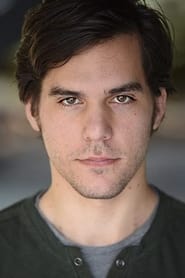 NameJordan FosterJobSet Dresser
NameJordan FosterJobSet Dresser -
 NameAnthony CampbellJobSet Dresser
NameAnthony CampbellJobSet Dresser -
 NameSara Gardner-GailJobSet Decoration Buyer
NameSara Gardner-GailJobSet Decoration Buyer -
 NameMargaret HungerfordJobSet Decoration Buyer
NameMargaret HungerfordJobSet Decoration Buyer -
 NameChristopher CarlsonJobSet Decoration Buyer
NameChristopher CarlsonJobSet Decoration Buyer -
 NameMichael W. PoplinJobSet Decoration Buyer
NameMichael W. PoplinJobSet Decoration Buyer -
 NameJeffrey DeBellJobGreensman
NameJeffrey DeBellJobGreensman -
 NameHenry DandoJobGreensman
NameHenry DandoJobGreensman -
 NameGuy CovingtonJobGreensman
NameGuy CovingtonJobGreensman -
 NameJarrod BannerJobGreensman
NameJarrod BannerJobGreensman -
 NameRobert Lee ChurchJobGreensman
NameRobert Lee ChurchJobGreensman -
 NameMichael CouzinsJobGreensman
NameMichael CouzinsJobGreensman -
 NameGuy L.G. Covington Jr.JobGreensman
NameGuy L.G. Covington Jr.JobGreensman -
 NameKevin DickJobGreensman
NameKevin DickJobGreensman -
 NameJordon FinkeJobGreensman
NameJordon FinkeJobGreensman -
 NameKeith AndrewsJobGreensman
NameKeith AndrewsJobGreensman -
 NameBonnie MackenzieJobGreensman
NameBonnie MackenzieJobGreensman -
 NameTrish Gallaher GlennJobProperty Master
NameTrish Gallaher GlennJobProperty Master -
 NameMonica CastroJobAssistant Property Master
NameMonica CastroJobAssistant Property Master -
 NameSteve CreminJobSpecial Effects Coordinator
NameSteve CreminJobSpecial Effects Coordinator -
 NameWilliam D. LeeJobSpecial Effects Coordinator
NameWilliam D. LeeJobSpecial Effects Coordinator -
 NameBrandon K. McLaughlinJobSpecial Effects Assistant
NameBrandon K. McLaughlinJobSpecial Effects Assistant -
 NameWilliam DawsonJobPyrotechnic Supervisor
NameWilliam DawsonJobPyrotechnic Supervisor -
 NameWes MattoxJobShop Electric
NameWes MattoxJobShop Electric -
 NameVince AcreeJobSpecial Effects Technician
NameVince AcreeJobSpecial Effects Technician -
 NameBrian DeeseJobSpecial Effects Technician
NameBrian DeeseJobSpecial Effects Technician -
 NameChristian F. EubankJobSpecial Effects Technician
NameChristian F. EubankJobSpecial Effects Technician -
 NamePhil H. FravelJobSpecial Effects Technician
NamePhil H. FravelJobSpecial Effects Technician -
 NameDavid HillJobSpecial Effects Technician
NameDavid HillJobSpecial Effects Technician -
 NameWilliam PurcellJobSpecial Effects Technician
NameWilliam PurcellJobSpecial Effects Technician -
 NameRob RiekerJobSpecial Effects Technician
NameRob RiekerJobSpecial Effects Technician -
 NameMorgan RogersJobSpecial Effects Technician
NameMorgan RogersJobSpecial Effects Technician -
 NameChelsea MadisonJobProduction Office Coordinator
NameChelsea MadisonJobProduction Office Coordinator -
 NameMichael CreminJobProduction Office Assistant
NameMichael CreminJobProduction Office Assistant -
 NameNick DawsonJobSpecial Effects
NameNick DawsonJobSpecial Effects -
 NameDan MooreJobCostume Supervisor
NameDan MooreJobCostume Supervisor -
 NameLisa TomczeszynJobAssistant Costume Designer
NameLisa TomczeszynJobAssistant Costume Designer -
 NameBill EdwardsJobKey Costumer
NameBill EdwardsJobKey Costumer -
 NameScott R. HankinsJobOn Set Dresser
NameScott R. HankinsJobOn Set Dresser -
 NameKeva KeyesJobOn Set Dresser
NameKeva KeyesJobOn Set Dresser -
 NameJulia RusthovenJobOn Set Dresser
NameJulia RusthovenJobOn Set Dresser -
 NameTiffany BuscheJobCostumer
NameTiffany BuscheJobCostumer -
 NameLinda Lindsay EdwardsJobCostumer
NameLinda Lindsay EdwardsJobCostumer -
 NameKate SawyerJobCostumer
NameKate SawyerJobCostumer -
 NameShawna-Nova FoleyJobCostumer
NameShawna-Nova FoleyJobCostumer -
 NameKelly DavisJobCostumer
NameKelly DavisJobCostumer -
 NameGinger KnussmannJobCostumer
NameGinger KnussmannJobCostumer -
 NameSteve ConstancioJobCostumer
NameSteve ConstancioJobCostumer -
 NameRobin McMullanJobCostumer
NameRobin McMullanJobCostumer -
 NameJanet MelodyJobAger/Dyer
NameJanet MelodyJobAger/Dyer -
 NameAnne LeeJobAger/Dyer
NameAnne LeeJobAger/Dyer -
 NameR. A. HossieJobCostumer
NameR. A. HossieJobCostumer -
 NameHeidi HaferJobCostumer
NameHeidi HaferJobCostumer -
 NameTerri HelmsJobCostumer
NameTerri HelmsJobCostumer -
 NameNatalie NyeJobCostumer
NameNatalie NyeJobCostumer -
 NameWendy MoynihanJobCostumer
NameWendy MoynihanJobCostumer -
 NameGloria ShihJobCostume Illustrator
NameGloria ShihJobCostume Illustrator -
 NameChristian CordellaJobCostume Illustrator
NameChristian CordellaJobCostume Illustrator -
 NameNikoletta SkarlatosJobKey Makeup Artist
NameNikoletta SkarlatosJobKey Makeup Artist -
 NameConor McCullaghJobMakeup Artist
NameConor McCullaghJobMakeup Artist -
 NameKris EvansJobMakeup Supervisor
NameKris EvansJobMakeup Supervisor -
 NameRick PourJobMakeup Artist
NameRick PourJobMakeup Artist -
 NameJason WillisJobMakeup Artist
NameJason WillisJobMakeup Artist -
 NameAnthony BrooksJobMakeup Artist
NameAnthony BrooksJobMakeup Artist -
 NameErin KeithJobMakeup Artist
NameErin KeithJobMakeup Artist -
 NameEdouard F. Henriques IIIJobMakeup Artist
NameEdouard F. Henriques IIIJobMakeup Artist -
 NamePeter De OliveiraJobMakeup Artist
NamePeter De OliveiraJobMakeup Artist -
 NameTricia SawyerJobMakeup Artist
NameTricia SawyerJobMakeup Artist -
 NameVasilios TanisJobMakeup Artist
NameVasilios TanisJobMakeup Artist -
 NameRobin BeauchesneJobMakeup Artist
NameRobin BeauchesneJobMakeup Artist -
 NameLeslie DevlinJobMakeup Artist
NameLeslie DevlinJobMakeup Artist -
 NameLufeng QuJobMakeup Artist
NameLufeng QuJobMakeup Artist -
 NameGunn EspegardJobMakeup Artist
NameGunn EspegardJobMakeup Artist -
 NameBecky CottonJobMakeup Artist
NameBecky CottonJobMakeup Artist -
 NameCyndi Reece-ThorneJobMakeup Artist
NameCyndi Reece-ThorneJobMakeup Artist -
 NameJulie SocashJobMakeup Artist
NameJulie SocashJobMakeup Artist -
 NameBradley M. LookJobMakeup Artist
NameBradley M. LookJobMakeup Artist -
 NameMartha CallenderJobMakeup Artist
NameMartha CallenderJobMakeup Artist -
 NameMarie DelpreteJobMakeup Artist
NameMarie DelpreteJobMakeup Artist -
 NameElena ArroyJobMakeup Artist
NameElena ArroyJobMakeup Artist -
 NameRobert MaverickJobMakeup Artist
NameRobert MaverickJobMakeup Artist -
 NameVeronica LorenzJobMakeup Artist
NameVeronica LorenzJobMakeup Artist -
 NameLisa RoccoJobMakeup Artist
NameLisa RoccoJobMakeup Artist -
 NameDavid DupuisJobMakeup Artist
NameDavid DupuisJobMakeup Artist -
 NameSuzanne DiazJobMakeup Artist
NameSuzanne DiazJobMakeup Artist -
 NameAnita BrabecJobMakeup Artist
NameAnita BrabecJobMakeup Artist -
 NameCheri MinnsJobMakeup Artist
NameCheri MinnsJobMakeup Artist -
 NameTravis PatesJobMakeup Artist
NameTravis PatesJobMakeup Artist -
 NameJennifer McCollomJobMakeup Artist
NameJennifer McCollomJobMakeup Artist -
 NameLindsay Irish-DesarnoJobMakeup Artist
NameLindsay Irish-DesarnoJobMakeup Artist -
 NameWendy BellJobMakeup Artist
NameWendy BellJobMakeup Artist -
 NameHerita JonesJobMakeup Artist
NameHerita JonesJobMakeup Artist -
 NameLinda KampJobMakeup Artist
NameLinda KampJobMakeup Artist -
 NameChris VaroskyJobMakeup Artist
NameChris VaroskyJobMakeup Artist -
 NameGlenn HetrickJobProsthetic Designer
NameGlenn HetrickJobProsthetic Designer -
 NameHiroshi KatigariJobSculptor
NameHiroshi KatigariJobSculptor -
 NameErin DraneyJobLead Painter
NameErin DraneyJobLead Painter -
 NameLinda FlowersJobHair Designer
NameLinda FlowersJobHair Designer -
 NameClare GniadekJobKey Hair Stylist
NameClare GniadekJobKey Hair Stylist -
 NameChristina RayeJobHairstylist
NameChristina RayeJobHairstylist -
 NameCherry Barber-PetenbrinkJobColorist
NameCherry Barber-PetenbrinkJobColorist -
 NameBarbara CantuJobHairstylist
NameBarbara CantuJobHairstylist -
 NameJoe E. Matke IIIJobHairstylist
NameJoe E. Matke IIIJobHairstylist -
 NameFrances MathiasJobHairstylist
NameFrances MathiasJobHairstylist -
 NameRex FaileJobHairstylist
NameRex FaileJobHairstylist -
 NameTaylor PetenbrinkJobHairstylist
NameTaylor PetenbrinkJobHairstylist -
 NameSylvia HendrixJobHairstylist
NameSylvia HendrixJobHairstylist -
 NameMeagan HerreraJobHairstylist
NameMeagan HerreraJobHairstylist -
 NameMelissa B. PollakJobHairstylist
NameMelissa B. PollakJobHairstylist -
 NameDiana AcreyJobHairstylist
NameDiana AcreyJobHairstylist -
 NameNicki AlkireJobHairstylist
NameNicki AlkireJobHairstylist -
 NameDeborah BallJobHairstylist
NameDeborah BallJobHairstylist -
 NameGina BaranJobHairstylist
NameGina BaranJobHairstylist -
 NameSheryl BlumJobHairstylist
NameSheryl BlumJobHairstylist -
 NameSusan BuffingtonJobHairstylist
NameSusan BuffingtonJobHairstylist -
 NameKelly E. CaldwellJobHairstylist
NameKelly E. CaldwellJobHairstylist -
 NameHeather ChoborJobHairstylist
NameHeather ChoborJobHairstylist -
 NameIraina CrenshawJobHairstylist
NameIraina CrenshawJobHairstylist -
 NameNicole DeFrancescoJobHairstylist
NameNicole DeFrancescoJobHairstylist -
 NameJoshua DitataJobHairstylist
NameJoshua DitataJobHairstylist -
 NameMonica DiventiJobHairstylist
NameMonica DiventiJobHairstylist -
 NameMary Ashton GlasserJobHairstylist
NameMary Ashton GlasserJobHairstylist -
 NamePatricia McAlhany GlasserJobHairstylist
NamePatricia McAlhany GlasserJobHairstylist -
 NamePriscilla GreenJobHairstylist
NamePriscilla GreenJobHairstylist -
 NameJennifer HannaJobHairstylist
NameJennifer HannaJobHairstylist -
 NameJerri HannaJobHairstylist
NameJerri HannaJobHairstylist -
 NameAubrey Harley IIJobHairstylist
NameAubrey Harley IIJobHairstylist -
 NameMirah HendrixJobHairstylist
NameMirah HendrixJobHairstylist -
 NameSparkles HillJobHairstylist
NameSparkles HillJobHairstylist -
 NameKimberly HolcomeJobHairstylist
NameKimberly HolcomeJobHairstylist -
 NameKristen HowellJobHairstylist
NameKristen HowellJobHairstylist -
 NameColleen LaBaffJobHairstylist
NameColleen LaBaffJobHairstylist -
 NameBryn E. LeetchJobHairstylist
NameBryn E. LeetchJobHairstylist -
 NameLaura LindseyJobHairstylist
NameLaura LindseyJobHairstylist -
 NameAnthony Jordan McClainJobHairstylist
NameAnthony Jordan McClainJobHairstylist -
 NameChelsea E. MilesJobHairstylist
NameChelsea E. MilesJobHairstylist -
 NameBryan David MossJobHairstylist
NameBryan David MossJobHairstylist -
 NameMichael PowellJobHairstylist
NameMichael PowellJobHairstylist -
 NameTaylor PriceJobHairstylist
NameTaylor PriceJobHairstylist -
 NameScott H. ReederJobHairstylist
NameScott H. ReederJobHairstylist -
 NameElizabeth RobinsonJobHairstylist
NameElizabeth RobinsonJobHairstylist -
 NameAutumn Lee SandbergJobHairstylist
NameAutumn Lee SandbergJobHairstylist -
 NameLavonyelle SimmonsJobHairstylist
NameLavonyelle SimmonsJobHairstylist -
 NameColette SlatteryJobHairstylist
NameColette SlatteryJobHairstylist -
 NameSteven R. SoussannaJobHairstylist
NameSteven R. SoussannaJobHairstylist -
 NameRanda SquillacoteJobHairstylist
NameRanda SquillacoteJobHairstylist -
 NameYvette StoneJobHairstylist
NameYvette StoneJobHairstylist -
 NameKatrina SuhreJobHairstylist
NameKatrina SuhreJobHairstylist -
 NameTaran HoyleJobHairstylist
NameTaran HoyleJobHairstylist -
 NameDawn TurnerJobHairstylist
NameDawn TurnerJobHairstylist -
 NameKerri UnderwoodJobHairstylist
NameKerri UnderwoodJobHairstylist -
 NameMelanie VerkinsJobHairstylist
NameMelanie VerkinsJobHairstylist -
 NameBryan WhisnantJobHairstylist
NameBryan WhisnantJobHairstylist -
 NameBernard WilliamsJobHairstylist
NameBernard WilliamsJobHairstylist -
 NameBeka WilsonJobHairstylist
NameBeka WilsonJobHairstylist -
 NameLyle K. WilsonJobHairstylist
NameLyle K. WilsonJobHairstylist -
 NameMelissa KostenbauderJobCasting Associate
NameMelissa KostenbauderJobCasting Associate -
 NameShayna MarkowitzJobCasting Assistant
NameShayna MarkowitzJobCasting Assistant -
 NameJackie BurchJobLocation Casting
NameJackie BurchJobLocation Casting -
 NameTona B. DahlquistJobExtras Casting
NameTona B. DahlquistJobExtras Casting -
 NameT. Ryan HillJobExtras Casting Assistant
NameT. Ryan HillJobExtras Casting Assistant -
 NameStephanie Fowler AdamsJobStudio Teacher
NameStephanie Fowler AdamsJobStudio Teacher -
 NameMatt ApplebyJobSet Production Assistant
NameMatt ApplebyJobSet Production Assistant -
 NameMichele CusickJobSet Production Assistant
NameMichele CusickJobSet Production Assistant -
 NameMichael A. FryJobSet Production Assistant
NameMichael A. FryJobSet Production Assistant -
 NameBen HammockJobSet Production Assistant
NameBen HammockJobSet Production Assistant -
 NameNicholas HoisingtonJobSet Production Assistant
NameNicholas HoisingtonJobSet Production Assistant -
 NameAdam MeadowsJobSet Production Assistant
NameAdam MeadowsJobSet Production Assistant -
 NamePatrick PriestJobSet Production Assistant
NamePatrick PriestJobSet Production Assistant -
 NameTarin SquillanteJobSet Production Assistant
NameTarin SquillanteJobSet Production Assistant -
 NameDerek WilsonJobSet Production Assistant
NameDerek WilsonJobSet Production Assistant -
 NameMelissa ZeiglerJobSet Production Assistant
NameMelissa ZeiglerJobSet Production Assistant -
 NameMichelle D'AntonioJobIntern
NameMichelle D'AntonioJobIntern -
 NameSara JustusJobIntern
NameSara JustusJobIntern -
 NameDustin DavisJobIntern
NameDustin DavisJobIntern -
 NameElizabeth GuiberteauJobIntern
NameElizabeth GuiberteauJobIntern -
 NameElizabeth HinesJobIntern
NameElizabeth HinesJobIntern -
 NameWill StorrsJobIntern
NameWill StorrsJobIntern -
 NameAnna StachowJobIntern
NameAnna StachowJobIntern -
 NameRene WilliamsJobIntern
NameRene WilliamsJobIntern -
 NameSarah EgriJobIntern
NameSarah EgriJobIntern -
 NameSergio SanchezJobIntern
NameSergio SanchezJobIntern -
 NameJulia PechanekJobIntern
NameJulia PechanekJobIntern -
 NameAlicia R. ElliottJobProduction Secretary
NameAlicia R. ElliottJobProduction Secretary -
 NameCaroline LivengoodJobProduction Secretary
NameCaroline LivengoodJobProduction Secretary -
 NameOmar HashmyJobProduction Office Assistant
NameOmar HashmyJobProduction Office Assistant -
 NameLauren BakerJobProduction Office Assistant
NameLauren BakerJobProduction Office Assistant -
 NameJason BlackmanJobProduction Office Assistant
NameJason BlackmanJobProduction Office Assistant -
 NameDrew GrantJobProduction Office Assistant
NameDrew GrantJobProduction Office Assistant -
 NameDrew Evan GreyJobProduction Office Assistant
NameDrew Evan GreyJobProduction Office Assistant -
 NameChristopher HewatJobProduction Office Assistant
NameChristopher HewatJobProduction Office Assistant -
 NameJessica PosadaJobProduction Office Assistant
NameJessica PosadaJobProduction Office Assistant -
 NamePeter R. MinorJobLocation Scout
NamePeter R. MinorJobLocation Scout -
 NameI. Karl GoldenJobLocation Scout
NameI. Karl GoldenJobLocation Scout -
 NameMichael BighamJobLocation Scout
NameMichael BighamJobLocation Scout -
 NameJonwilder Lee BartlettJobAnimal Wrangler
NameJonwilder Lee BartlettJobAnimal Wrangler -
 NameKallen Hollifield DehartJobAnimal Wrangler
NameKallen Hollifield DehartJobAnimal Wrangler -
 NameThomas A. Morris Jr.JobConstruction Coordinator
NameThomas A. Morris Jr.JobConstruction Coordinator -
 NameRichard M. ColeJobGenerator Operator
NameRichard M. ColeJobGenerator Operator -
 NamePaul L. SaundersJobPropmaker
NamePaul L. SaundersJobPropmaker -
 NameAaron Brent JaggersJobConstruction Foreman
NameAaron Brent JaggersJobConstruction Foreman -
 NameWilliam Scot NoonanJobConstruction Coordinator
NameWilliam Scot NoonanJobConstruction Coordinator -
 NameLisa KurkJobConstruction Buyer
NameLisa KurkJobConstruction Buyer -
 NameKevin ApsitisJobPropmaker
NameKevin ApsitisJobPropmaker -
 NameIlkay AvciJobPropmaker
NameIlkay AvciJobPropmaker -
 NameSam Cody BallJobPropmaker
NameSam Cody BallJobPropmaker -
 NameJames B. BellJobPropmaker
NameJames B. BellJobPropmaker -
 NameCindy BerryJobPropmaker
NameCindy BerryJobPropmaker -
 NameHobie BohlenJobPropmaker
NameHobie BohlenJobPropmaker -
 NameWilliam M. BohlenJobPropmaker
NameWilliam M. BohlenJobPropmaker -
 NameLarry BrooksJobPropmaker
NameLarry BrooksJobPropmaker -
 NameSteve ButnerJobPropmaker
NameSteve ButnerJobPropmaker -
 NameLance CarterJobPropmaker
NameLance CarterJobPropmaker -
 NameJames David CrouchJobPropmaker
NameJames David CrouchJobPropmaker -
 NameJonathan Tucker DeeseJobPropmaker
NameJonathan Tucker DeeseJobPropmaker -
 NameCrystal L. DellingerJobPropmaker
NameCrystal L. DellingerJobPropmaker -
 NameAlex DoyleJobPropmaker
NameAlex DoyleJobPropmaker -
 NameJim B. EarnhardtJobPropmaker
NameJim B. EarnhardtJobPropmaker -
 NameRobert FergusonJobPropmaker
NameRobert FergusonJobPropmaker -
 NameThomas C. FitzpatrickJobPropmaker
NameThomas C. FitzpatrickJobPropmaker -
 NameJames GallariniJobPropmaker
NameJames GallariniJobPropmaker -
 NameJeremy GibbsJobPropmaker
NameJeremy GibbsJobPropmaker -
 NameJoseph GolzJobPropmaker
NameJoseph GolzJobPropmaker -
 NameRodney N. GoodeJobPropmaker
NameRodney N. GoodeJobPropmaker -
 NameDavid Allen GrangerJobPropmaker
NameDavid Allen GrangerJobPropmaker -
 NameKevin HalasJobPropmaker
NameKevin HalasJobPropmaker -
 NameMichael E. HallJobPropmaker
NameMichael E. HallJobPropmaker -
 NameKenneth W. Heist Jr.JobPropmaker
NameKenneth W. Heist Jr.JobPropmaker -
 NameJeremy HolroydJobPropmaker
NameJeremy HolroydJobPropmaker -
 NameJames J. Hogue Jr.JobPropmaker
NameJames J. Hogue Jr.JobPropmaker -
 NameErnest HuffJobPropmaker
NameErnest HuffJobPropmaker -
 NameJames Earl JamiesonJobPropmaker
NameJames Earl JamiesonJobPropmaker -
 NameDanny KiserJobPropmaker
NameDanny KiserJobPropmaker -
 NameJeff KramerJobPropmaker
NameJeff KramerJobPropmaker -
 NameWilliam S. LakeJobPropmaker
NameWilliam S. LakeJobPropmaker -
 NameGary W. LangJobPropmaker
NameGary W. LangJobPropmaker -
 NameReginald T. LawsonJobPropmaker
NameReginald T. LawsonJobPropmaker -
 NameBryan H. LeeJobPropmaker
NameBryan H. LeeJobPropmaker -
 NameMario J. LivaJobPropmaker
NameMario J. LivaJobPropmaker -
 NameHal McFeely IIIJobPropmaker
NameHal McFeely IIIJobPropmaker -
 NameRobert E. McNallyJobPropmaker
NameRobert E. McNallyJobPropmaker -
 NameRandall R. MilazzoJobPropmaker
NameRandall R. MilazzoJobPropmaker -
 NameCharles MitchellJobPropmaker
NameCharles MitchellJobPropmaker -
 NameDelane MossJobPropmaker
NameDelane MossJobPropmaker -
 NameLenual MukaiJobPropmaker
NameLenual MukaiJobPropmaker -
 NameCal OcampoJobPropmaker
NameCal OcampoJobPropmaker -
 NameSam OgdenJobPropmaker
NameSam OgdenJobPropmaker -
 NameMitchell O'ShealJobPropmaker
NameMitchell O'ShealJobPropmaker -
 NameTim OwenJobPropmaker
NameTim OwenJobPropmaker -
 NameJosh PearsonJobPropmaker
NameJosh PearsonJobPropmaker -
 NameEvan PileriJobPropmaker
NameEvan PileriJobPropmaker -
 NameTim PottsJobPropmaker
NameTim PottsJobPropmaker -
 NameGreg PriceJobPropmaker
NameGreg PriceJobPropmaker -
 NameWilliam RampeyJobPropmaker
NameWilliam RampeyJobPropmaker -
 NameCara E. RhodesJobPropmaker
NameCara E. RhodesJobPropmaker -
 NameRussell EvansJobPropmaker
NameRussell EvansJobPropmaker -
 NameAlbert SheppardJobPropmaker
NameAlbert SheppardJobPropmaker -
 NameJessie SmithJobPropmaker
NameJessie SmithJobPropmaker -
 NameMarty SmithJobPropmaker
NameMarty SmithJobPropmaker -
 NameS. Curran SmithJobPropmaker
NameS. Curran SmithJobPropmaker -
 NameJohn R. SmyrlJobPropmaker
NameJohn R. SmyrlJobPropmaker -
 NameSteve SonefeldJobPropmaker
NameSteve SonefeldJobPropmaker -
 NameBryan Paul StewartJobPropmaker
NameBryan Paul StewartJobPropmaker -
 NameLester V. StoneJobPropmaker
NameLester V. StoneJobPropmaker -
 NameKevin TwomeyJobPropmaker
NameKevin TwomeyJobPropmaker -
 NameScott B. WarnerJobPropmaker
NameScott B. WarnerJobPropmaker -
 NameJoseph WashburnJobPropmaker
NameJoseph WashburnJobPropmaker -
 NameJeffrey N. WeeksJobPropmaker
NameJeffrey N. WeeksJobPropmaker -
 NameChris WrightJobPropmaker
NameChris WrightJobPropmaker -
 NameAlexander ScuttiJobKey Construction Grip
NameAlexander ScuttiJobKey Construction Grip -
 NameMared G. ScuttiJobConstruction Foreman
NameMared G. ScuttiJobConstruction Foreman -
 NameRichard RiggsJobScenic Artist
NameRichard RiggsJobScenic Artist -
 NameGordon HugginsJobScenic Artist
NameGordon HugginsJobScenic Artist -
 NameRod GarvinJobScenic Artist
NameRod GarvinJobScenic Artist -
 NameJohn ThomasJobScenic Artist
NameJohn ThomasJobScenic Artist -
 NameAdrian ValdesJobLocation Manager
NameAdrian ValdesJobLocation Manager -
 NameGreg SchmitzJobScenic Artist
NameGreg SchmitzJobScenic Artist -
 NameThomas JohnJobScenic Artist
NameThomas JohnJobScenic Artist -
 NameChristopher WoodworthJobScenic Artist
NameChristopher WoodworthJobScenic Artist -
 NamePaul W. GorfineJobScenic Artist
NamePaul W. GorfineJobScenic Artist -
 NameLaura C. McPhersonJobScenic Artist
NameLaura C. McPhersonJobScenic Artist -
 NameTim HunleyJobScenic Artist
NameTim HunleyJobScenic Artist -
 NameRandal WoodwardJobScenic Artist
NameRandal WoodwardJobScenic Artist -
 NameChris BogartJobScenic Artist
NameChris BogartJobScenic Artist -
 NameRae SignerJobScenic Artist
NameRae SignerJobScenic Artist -
 NamePenny S. ThomasJobScenic Artist
NamePenny S. ThomasJobScenic Artist -
 NameSean WhalenJobScenic Artist
NameSean WhalenJobScenic Artist -
 NameWilliam F. GambillJobScenic Artist
NameWilliam F. GambillJobScenic Artist -
 NameAlton McClellanJobScenic Artist
NameAlton McClellanJobScenic Artist -
 NameAndrea NowowiejskiJobScenic Artist
NameAndrea NowowiejskiJobScenic Artist -
 NameStephanie MacomberJobScenic Artist
NameStephanie MacomberJobScenic Artist -
 NameMatthew AndrewsJobPainter
NameMatthew AndrewsJobPainter -
 NameThomas B. Aykroid Jr.JobPainter
NameThomas B. Aykroid Jr.JobPainter -
 NameAaron John FailingJobPainter
NameAaron John FailingJobPainter -
 NamePetra Abigail GuglerJobPainter
NamePetra Abigail GuglerJobPainter -
 NameMichael G. KhalilJobPainter
NameMichael G. KhalilJobPainter -
 NameJudith OrszulaJobPainter
NameJudith OrszulaJobPainter -
 NameJehan PurcellJobPainter
NameJehan PurcellJobPainter -
 NameLamont SnipesJobPainter
NameLamont SnipesJobPainter -
 NameFrank StoneJobPainter
NameFrank StoneJobPainter -
 NameNicole T. StrojnyJobPainter
NameNicole T. StrojnyJobPainter -
 NameGeorge VielmaJobPainter
NameGeorge VielmaJobPainter -
 NameBen WoodworthJobPainter
NameBen WoodworthJobPainter -
 NameCraig FehrmanJobTransportation Coordinator
NameCraig FehrmanJobTransportation Coordinator -
 NameJohn Rice Sr.JobTransportation Captain
NameJohn Rice Sr.JobTransportation Captain -
 NameMike ShannonJobTransportation Captain
NameMike ShannonJobTransportation Captain -
 NameSteven C. PenixJobTransportation Co-Captain
NameSteven C. PenixJobTransportation Co-Captain -
 NameTracy LaffertyJobTransportation Coordinator
NameTracy LaffertyJobTransportation Coordinator -
 NameLeonel AlvarezJobDriver
NameLeonel AlvarezJobDriver -
 NameTodd Stacey AndersonJobDriver
NameTodd Stacey AndersonJobDriver -
 NameNeil CastlesJobDriver
NameNeil CastlesJobDriver -
 NameRobert GillisJobDriver
NameRobert GillisJobDriver -
 NameDewey GrahamJobDriver
NameDewey GrahamJobDriver -
 NameJohn C. GrangerJobDriver
NameJohn C. GrangerJobDriver -
 NameMike GregorioJobDriver
NameMike GregorioJobDriver -
 NameKevin Andrew HydeJobDriver
NameKevin Andrew HydeJobDriver -
 NameJim L. JohnsonJobDriver
NameJim L. JohnsonJobDriver -
 NameTimothy JohnsonJobDriver
NameTimothy JohnsonJobDriver -
 NameMcCullen LewisJobDriver
NameMcCullen LewisJobDriver -
 NameLadonna P. NorwoodJobDriver
NameLadonna P. NorwoodJobDriver -
 NameMichael O'BrienJobDriver
NameMichael O'BrienJobDriver -
 NameJoey ParkerJobDriver
NameJoey ParkerJobDriver -
 NameWayne ParviainenJobDriver
NameWayne ParviainenJobDriver -
 NamePhil ShopeJobDriver
NamePhil ShopeJobDriver -
 NameDennis SteereJobDriver
NameDennis SteereJobDriver -
 NameRick WomelduffJobDriver
NameRick WomelduffJobDriver -
 NameJimmy D. WrightJobDriver
NameJimmy D. WrightJobDriver -
 NameVictor YbiernasJobDriver
NameVictor YbiernasJobDriver -
 NameKenneth SheltonJobAnimal Coordinator
NameKenneth SheltonJobAnimal Coordinator -
 NameCraig CarterJobAnimal Wrangler
NameCraig CarterJobAnimal Wrangler -
 NameMarijan 'Mario' ZoricJobChef
NameMarijan 'Mario' ZoricJobChef -
 NameAnthony ZoricJobAssistant Chef
NameAnthony ZoricJobAssistant Chef -
 NameMichelle Lee BrownJobCraft Service
NameMichelle Lee BrownJobCraft Service -
 NameRobyn M. BrownJobAssistant Craft Service
NameRobyn M. BrownJobAssistant Craft Service -
 NameBrian Marshall TurnerJobSet Medic
NameBrian Marshall TurnerJobSet Medic -
 NameBarry ColemanJobSet Medic
NameBarry ColemanJobSet Medic -
 NameRich BellinaJobSet Medic
NameRich BellinaJobSet Medic -
 NameRandy BowieJobSecurity
NameRandy BowieJobSecurity -
 NameMike StewartJobSecurity
NameMike StewartJobSecurity -
 NameLaura SevierJobClearances Consultant
NameLaura SevierJobClearances Consultant -
 NameCassandra BarbourJobClearances Consultant
NameCassandra BarbourJobClearances Consultant -
 NameSam HurwitzJobEpk Producer
NameSam HurwitzJobEpk Producer -
 NameChad StahelskiJobSecond Unit Director
NameChad StahelskiJobSecond Unit Director -
 NameScott FarrarJobSecond Unit Director
NameScott FarrarJobSecond Unit Director -
 NameJon KilikJobSecond Unit Director
NameJon KilikJobSecond Unit Director -
 NamePeter RodgerJobSecond Unit Director
NamePeter RodgerJobSecond Unit Director -
 NameSteven SoderberghJobSecond Unit Director
NameSteven SoderberghJobSecond Unit Director -
 NameChristopher A. SchenckJobCamera Operator
NameChristopher A. SchenckJobCamera Operator -
 NameJoe D'AlessandroJobCamera Operator
NameJoe D'AlessandroJobCamera Operator -
 NameGary ScottJobFirst Assistant Camera
NameGary ScottJobFirst Assistant Camera -
 NameAlan AldridgeJobFirst Assistant Camera
NameAlan AldridgeJobFirst Assistant Camera -
 NameWarren BraceJobSecond Assistant Camera
NameWarren BraceJobSecond Assistant Camera -
 NameMatthew Kelly JacksonJobFilm Processor
NameMatthew Kelly JacksonJobFilm Processor -
 NameSidney WilliamsJobSound Mixer
NameSidney WilliamsJobSound Mixer -
 NameTony JenzanoJobVideo Assist Operator
NameTony JenzanoJobVideo Assist Operator -
 NameSteve SkinnerJobKey Grip
NameSteve SkinnerJobKey Grip -
 NameDavid NobleJobBest Boy Grip
NameDavid NobleJobBest Boy Grip -
 NameShawn C. H. BaronJobGrip
NameShawn C. H. BaronJobGrip -
 NameBrian KnoxJobGrip
NameBrian KnoxJobGrip -
 NameLane OliverJobGrip
NameLane OliverJobGrip -
 NameNeil OrchardJobGrip
NameNeil OrchardJobGrip -
 NameJames R. TamaroJobGaffer
NameJames R. TamaroJobGaffer -
 NameSuann SobkowskiJobCostumer
NameSuann SobkowskiJobCostumer -
 NameLaura WadfordJobCostumer
NameLaura WadfordJobCostumer -
 NameTeresa BeachJobCostumer
NameTeresa BeachJobCostumer -
 NamePamela MillerJobCostumer
NamePamela MillerJobCostumer -
 NameMyra N. FoyJobCostumer
NameMyra N. FoyJobCostumer -
 NameSadie Paige BartonJobSet Production Assistant
NameSadie Paige BartonJobSet Production Assistant -
 NameRyan BeamsJobSet Production Assistant
NameRyan BeamsJobSet Production Assistant -
 NameLaCourtney GarrettJobSet Production Assistant
NameLaCourtney GarrettJobSet Production Assistant -
 NameGeorge LefaveJobSet Production Assistant
NameGeorge LefaveJobSet Production Assistant -
 NameRose LutherJobSet Production Assistant
NameRose LutherJobSet Production Assistant -
 NameJames Edward TildenJobSet Production Assistant
NameJames Edward TildenJobSet Production Assistant -
 NameJeese TylerJobSet Production Assistant
NameJeese TylerJobSet Production Assistant -
 NameCaleb S. VarnadoeJobSet Production Assistant
NameCaleb S. VarnadoeJobSet Production Assistant -
 NameCathy MitchellJobCraft Service
NameCathy MitchellJobCraft Service -
 NameCindy Nache' HatchelJobCraft Service
NameCindy Nache' HatchelJobCraft Service -
 NameJacqueline "Bobbi" WherryJobCraft Service
NameJacqueline "Bobbi" WherryJobCraft Service -
 NameJennie LebeauJobSet Medic
NameJennie LebeauJobSet Medic -
 NameGlynna GrimalaJobADR Supervisor
NameGlynna GrimalaJobADR Supervisor -
 NameBill R. DeanJobSound Designer
NameBill R. DeanJobSound Designer -
 NameKris FenskeJobSound Designer
NameKris FenskeJobSound Designer -
 NameGreg HedgepathJobSound Editor
NameGreg HedgepathJobSound Editor -
 NamePaul HacknerJobSound Editor
NamePaul HacknerJobSound Editor -
 NameChristopher AssellsJobSound Editor
NameChristopher AssellsJobSound Editor -
 NameGlenn T. MorganJobSound Editor
NameGlenn T. MorganJobSound Editor -
 NamePeter ZindaJobSound Editor
NamePeter ZindaJobSound Editor -
 NameMargit PfeifferJobDialogue Editor
NameMargit PfeifferJobDialogue Editor -
 NameNancy MacLeodJobFoley Editor
NameNancy MacLeodJobFoley Editor -
 NameWade WilsonJobFoley Editor
NameWade WilsonJobFoley Editor -
 NameImraan IsmailJobPost Production Assistant
NameImraan IsmailJobPost Production Assistant -
 NameGary A. HeckerJobFoley Supervisor
NameGary A. HeckerJobFoley Supervisor -
 NameGary MarulloJobFoley Artist
NameGary MarulloJobFoley Artist -
 NameCatherine HarperJobFoley Artist
NameCatherine HarperJobFoley Artist -
 NameChristopher MorianaJobFoley Artist
NameChristopher MorianaJobFoley Artist -
 NameNerses GezalyanJobFoley Mixer
NameNerses GezalyanJobFoley Mixer -
 NameChris NavarroJobADR Mixer
NameChris NavarroJobADR Mixer -
 NameTami TreadwellJobADR Mixer
NameTami TreadwellJobADR Mixer -
 NameRon BedrosianJobADR Mixer
NameRon BedrosianJobADR Mixer -
 NameMaxime VermetteJobADR Mixer
NameMaxime VermetteJobADR Mixer -
 NameSteve GiammariaJobADR Mixer
NameSteve GiammariaJobADR Mixer -
 NameShane HayesJobADR Recordist
NameShane HayesJobADR Recordist -
 NameJulio CarmonaJobADR Recordist
NameJulio CarmonaJobADR Recordist -
 NamePatrick ChristensenJobADR Recordist
NamePatrick ChristensenJobADR Recordist -
 NameCharlie CampagnaJobADR Recordist
NameCharlie CampagnaJobADR Recordist -
 NameRobert LlamasJobADR Recordist
NameRobert LlamasJobADR Recordist -
 NameGray BenderJobADR Recordist
NameGray BenderJobADR Recordist -
 NameDrea MorinJobADR Recordist
NameDrea MorinJobADR Recordist -
 NameRobert AlthoffJobMix Technician
NameRobert AlthoffJobMix Technician -
 NameCeri ThomasJobMix Technician
NameCeri ThomasJobMix Technician -
 NameMichael HatzerJobDigital Colorist
NameMichael HatzerJobDigital Colorist -
 NameChris JensenJobDigital Colorist
NameChris JensenJobDigital Colorist -
 NameBob PeishelJobDigital Intermediate Producer
NameBob PeishelJobDigital Intermediate Producer -
 NameMark SahagunJobDigital Intermediate Editor
NameMark SahagunJobDigital Intermediate Editor -
 NameGeorge ZiddJobData Management Technician
NameGeorge ZiddJobData Management Technician -
 NameAshley FarberJobData Management Technician
NameAshley FarberJobData Management Technician -
 NameRon PerezJobData Management Technician
NameRon PerezJobData Management Technician -
 NameDerek SchneiderJobData Management Technician
NameDerek SchneiderJobData Management Technician -
 NameCameron WeaverJobData Management Technician
NameCameron WeaverJobData Management Technician -
 NameScott FarrarJobAdditional Visual Effects
NameScott FarrarJobAdditional Visual Effects -
 NameJacquie BarnbrookJobVisual Effects Producer
NameJacquie BarnbrookJobVisual Effects Producer -
 NameS. Regina CarneyJobVisual Effects Coordinator
NameS. Regina CarneyJobVisual Effects Coordinator -
 NameG. "Nic" NicholsonJobVisual Effects Technical Director
NameG. "Nic" NicholsonJobVisual Effects Technical Director -
 NameOmar HashmyJobVisual Effects Production Assistant
NameOmar HashmyJobVisual Effects Production Assistant -
 NameReid SouthenJobConcept Artist
NameReid SouthenJobConcept Artist -
 NameRobert StromburgJobConcept Artist
NameRobert StromburgJobConcept Artist -
 NameIvo HorvatJobConcept Artist
NameIvo HorvatJobConcept Artist -
 NameAlex JaegerJobConcept Artist
NameAlex JaegerJobConcept Artist -
 NameChristian AlzmannJobConcept Artist
NameChristian AlzmannJobConcept Artist -
 NameJohn StewartJobCompositor
NameJohn StewartJobCompositor -
 NameJohn BrennickJobCompositor
NameJohn BrennickJobCompositor -
 NameHubert 'Huey' Carroll IIJobCompositor
NameHubert 'Huey' Carroll IIJobCompositor -
 NameWilliam JohnsonJobCompositor
NameWilliam JohnsonJobCompositor -
 NameRandy LittleJobCompositor
NameRandy LittleJobCompositor -
 NameDaniel LeducJobVisual Effects Producer
NameDaniel LeducJobVisual Effects Producer -
 NamePierre RaymondJobVisual Effects Producer
NamePierre RaymondJobVisual Effects Producer -
 NameThierry DelattreJobVisual Effects Supervisor
NameThierry DelattreJobVisual Effects Supervisor -
 NamePhilippe TherouxJobVisual Effects Supervisor
NamePhilippe TherouxJobVisual Effects Supervisor -
 NameMichel BarrièreJobCompositing Supervisor
NameMichel BarrièreJobCompositing Supervisor -
 NameJean-Pierre FlayeuxJobCompositing Supervisor
NameJean-Pierre FlayeuxJobCompositing Supervisor -
 NameRichard MartinJobCompositing Supervisor
NameRichard MartinJobCompositing Supervisor -
 NameJoanie CroteauJobVisual Effects Coordinator
NameJoanie CroteauJobVisual Effects Coordinator -
 NameMyléne GuérinJobVisual Effects Coordinator
NameMyléne GuérinJobVisual Effects Coordinator -
 NameAnouk L'HeureuxJobVisual Effects Coordinator
NameAnouk L'HeureuxJobVisual Effects Coordinator -
 NameMathieu LalondeJobModeling
NameMathieu LalondeJobModeling -
 NameDavid RobergeJobModeling
NameDavid RobergeJobModeling -
 NameFrancois ChancrinJobLead Animator
NameFrancois ChancrinJobLead Animator -
 NameMarc AubryJobAnimation
NameMarc AubryJobAnimation -
 NameJosef SyJobAnimation
NameJosef SyJobAnimation -
 NameDanny LevesqueJobEffects Supervisor
NameDanny LevesqueJobEffects Supervisor -
 NameNathan SrigleyJobAnimation
NameNathan SrigleyJobAnimation -
 NameGaetan ThiffaultJobAnimation
NameGaetan ThiffaultJobAnimation -
 NameDwayne Lance ElahieJobRigging Supervisor
NameDwayne Lance ElahieJobRigging Supervisor -
 NamePatrick PicheJobTechnical Supervisor
NamePatrick PicheJobTechnical Supervisor -
 NameMathieu LeclaireJobTechnical Supervisor
NameMathieu LeclaireJobTechnical Supervisor -
 NameJalal TchelebiJobTechnical Supervisor
NameJalal TchelebiJobTechnical Supervisor -
 NameAlain LacroixJobLayout
NameAlain LacroixJobLayout -
 NameSteve PelchatJobLayout
NameSteve PelchatJobLayout -
 NamePatrice-Alain BarretteJobCompositor
NamePatrice-Alain BarretteJobCompositor -
 NameOliver BeaulieuJobCompositor
NameOliver BeaulieuJobCompositor -
 NamePaul BeaudryJobCompositor
NamePaul BeaudryJobCompositor -
 NameMichel BergeronJobCompositor
NameMichel BergeronJobCompositor -
 NamePierre BlainJobCompositor
NamePierre BlainJobCompositor -
 NameCaroline BrienJobCompositor
NameCaroline BrienJobCompositor -
 NameMathieu DupuisJobCompositor
NameMathieu DupuisJobCompositor -
 NameVeronique GuayJobCompositor
NameVeronique GuayJobCompositor -
 NameNadine HomierJobCompositor
NameNadine HomierJobCompositor -
 NameSebastien JacobJobCompositor
NameSebastien JacobJobCompositor -
 NameFrancois LeducJobCompositor
NameFrancois LeducJobCompositor -
 NameJocelyn MaherJobCompositor
NameJocelyn MaherJobCompositor -
 NameFrancois MetivierJobCompositor
NameFrancois MetivierJobCompositor -
 NameBenjamin MyersJobCompositor
NameBenjamin MyersJobCompositor -
 NameSean O'ConnorJobCompositor
NameSean O'ConnorJobCompositor -
 NameEmmanuel PelletierJobCompositor
NameEmmanuel PelletierJobCompositor -
 NameSébastien RiouxJobCompositor
NameSébastien RiouxJobCompositor -
 NameKaty SavoieJobCompositor
NameKaty SavoieJobCompositor -
 NameGuillaume St-Aubin-SeersJobCompositor
NameGuillaume St-Aubin-SeersJobCompositor -
 NameVéronique TremblayJobCompositor
NameVéronique TremblayJobCompositor -
 NameAnne Ui-Hyun KimJobCompositor
NameAnne Ui-Hyun KimJobCompositor -
 NamePierrot BerubeJobProduction Assistant
NamePierrot BerubeJobProduction Assistant -
 NameOliver GravelJobProduction Assistant
NameOliver GravelJobProduction Assistant -
 NameSamuel Lepage-BedardJobCompositor
NameSamuel Lepage-BedardJobCompositor -
 NameBelly MingmuongJobProduction Assistant
NameBelly MingmuongJobProduction Assistant -
 NameCaroline BelisleJobAdministration
NameCaroline BelisleJobAdministration -
 NameSylvie TalbotJobAdministration
NameSylvie TalbotJobAdministration -
 NameAnne TremblayJobAdministration
NameAnne TremblayJobAdministration -
 NameDeborah ZadzoraJobAdministration
NameDeborah ZadzoraJobAdministration -
 NameJohn DietzJobVFX Supervisor
NameJohn DietzJobVFX Supervisor -
 NameDennis JonesJobVFX Supervisor
NameDennis JonesJobVFX Supervisor -
 NameRichard ThwaitesJobVFX Production Coordinator
NameRichard ThwaitesJobVFX Production Coordinator -
 NameMarc SadeghiJobExecutive Visual Effects Producer
NameMarc SadeghiJobExecutive Visual Effects Producer -
 NameGemma JamesJobVisual Effects Production Manager
NameGemma JamesJobVisual Effects Production Manager -
 NameMark StoryJobVisual Effects Coordinator
NameMark StoryJobVisual Effects Coordinator -
 NameHelen ClareJobVisual Effects Coordinator
NameHelen ClareJobVisual Effects Coordinator -
 NameVirginia WilsonJobVisual Effects Coordinator
NameVirginia WilsonJobVisual Effects Coordinator -
 NameJason MadiganJobCompositing Supervisor
NameJason MadiganJobCompositing Supervisor -
 NameNick PillJobArt Direction
NameNick PillJobArt Direction -
 NameAlex MeddickJobVFX Editor
NameAlex MeddickJobVFX Editor -
 NameSean LahiffJobVFX Editor
NameSean LahiffJobVFX Editor -
 NameAnto BondJobModelling Supervisor
NameAnto BondJobModelling Supervisor -
 NameShamus BakerJobModelling Supervisor
NameShamus BakerJobModelling Supervisor -
 NameSteve CypreosJobModeling
NameSteve CypreosJobModeling -
 NameRay LeungJobModeling
NameRay LeungJobModeling -
 NameSuchitra KeshriJobModeling
NameSuchitra KeshriJobModeling -
 NameNa SongJobModeling
NameNa SongJobModeling -
 NameMichael KarpJobCamera Department Manager
NameMichael KarpJobCamera Department Manager -
 NameHeath BakerJobRoto Supervisor
NameHeath BakerJobRoto Supervisor -
 NameHeath BakerJobPaint Coordinator
NameHeath BakerJobPaint Coordinator -
 NameSusan ImmomenJobRotoscoping Artist
NameSusan ImmomenJobRotoscoping Artist -
 NameSusan ImmomenJobPainter
NameSusan ImmomenJobPainter -
 NameMauricio ValderramaJobRotoscoping Artist
NameMauricio ValderramaJobRotoscoping Artist -
 NameSimon HerdenJobRotoscoping Artist
NameSimon HerdenJobRotoscoping Artist -
 NameSimon HerdenJobPainter
NameSimon HerdenJobPainter -
 NameJeremy Kelly-BakkerJobPainter
NameJeremy Kelly-BakkerJobPainter -
 NameJeremy Kelly-BakerJobRotoscoping Artist
NameJeremy Kelly-BakerJobRotoscoping Artist -
 NameBen McEwanJobRotoscoping Artist
NameBen McEwanJobRotoscoping Artist -
 NameBen McEwanJobPainter
NameBen McEwanJobPainter -
 NameOwen CarrollJobRotoscoping Artist
NameOwen CarrollJobRotoscoping Artist -
 NameOwen CarrollJobPainter
NameOwen CarrollJobPainter -
 NameEric GambiniJobLayout Supervisor
NameEric GambiniJobLayout Supervisor -
 NameVictor GlushchenkoJobAnimation Director
NameVictor GlushchenkoJobAnimation Director -
 NameEric BatesJobAnimation
NameEric BatesJobAnimation -
 NameMark KennedyJobAnimation
NameMark KennedyJobAnimation -
 NameNathan JonesJobAnimation
NameNathan JonesJobAnimation -
 NameNathan JonesJobAnimation
NameNathan JonesJobAnimation -
 NameMorgan ReadJobAnimation
NameMorgan ReadJobAnimation -
 NameAmy SendonJobAnimation
NameAmy SendonJobAnimation -
 NameJared EmbleyJobVisual Effects Technical Director
NameJared EmbleyJobVisual Effects Technical Director -
 NamePrema PaetschJobVisual Effects Technical Director
NamePrema PaetschJobVisual Effects Technical Director -
 NameGabe RoccisanoJobVisual Effects Technical Director
NameGabe RoccisanoJobVisual Effects Technical Director -
 NameTimmy LundinJobVisual Effects Technical Director
NameTimmy LundinJobVisual Effects Technical Director -
 NameDaniel WillisJobVisual Effects Technical Director
NameDaniel WillisJobVisual Effects Technical Director -
 NameDamien ThallerJobMatte Painter
NameDamien ThallerJobMatte Painter -
 NameGarrett FryJobMatte Painter
NameGarrett FryJobMatte Painter -
 NameNick CattellJobMatte Painter
NameNick CattellJobMatte Painter -
 NameTyler BartleyJobMatte Painter
NameTyler BartleyJobMatte Painter -
 NameAlana ArankiJobCompositing Lead
NameAlana ArankiJobCompositing Lead -
 NameBen RobertsJobCompositing Lead
NameBen RobertsJobCompositing Lead -
 NameBeck VeitchJobCompositing Lead
NameBeck VeitchJobCompositing Lead -
 NameSamuel NormanJobCompositor
NameSamuel NormanJobCompositor -
 NameSebastian BommersheimJobCompositor
NameSebastian BommersheimJobCompositor -
 NameMatthew ShawJobCompositor
NameMatthew ShawJobCompositor -
 NameSimon DyeJobCompositor
NameSimon DyeJobCompositor -
 NameTimothy BowmanJobCompositor
NameTimothy BowmanJobCompositor -
 NameAnnabelle KentJobCompositor
NameAnnabelle KentJobCompositor -
 NameAbdullah EcirliJobCompositor
NameAbdullah EcirliJobCompositor -
 NameBen DicksonJobCompositor
NameBen DicksonJobCompositor -
 NamePeter O'ConnellJobCompositor
NamePeter O'ConnellJobCompositor -
 NameRandy VellacottJobCompositor
NameRandy VellacottJobCompositor -
 NameToby AngwinJobCompositor
NameToby AngwinJobCompositor -
 NameRobert RowlesJobCompositor
NameRobert RowlesJobCompositor -
 NameMark DayJobSystems Administrators & Support
NameMark DayJobSystems Administrators & Support -
 NameSpyro PolymiadasJobSystems Administrators & Support
NameSpyro PolymiadasJobSystems Administrators & Support -
 NameSteven "Pix" PicklesJobSystems Administrators & Support
NameSteven "Pix" PicklesJobSystems Administrators & Support -
 NameChristian BoudmanJobCompositing Supervisor
NameChristian BoudmanJobCompositing Supervisor -
 NameMegan RohrbacherJobVisual Effects Producer
NameMegan RohrbacherJobVisual Effects Producer -
 NameBob WiatrJobCompositor
NameBob WiatrJobCompositor -
 NameJeremy BurnsJobCompositor
NameJeremy BurnsJobCompositor -
 NameRobert BlueJobCompositor
NameRobert BlueJobCompositor -
 NameLisa DeanerJobCompositor
NameLisa DeanerJobCompositor -
 NameMax HarrisJobCompositor
NameMax HarrisJobCompositor -
 NameJohn F.K. ParenteauJobVFX Supervisor
NameJohn F.K. ParenteauJobVFX Supervisor -
 NameBjörn MayerJobVFX Supervisor
NameBjörn MayerJobVFX Supervisor -
 NameAddie ManisJobVFX Production Coordinator
NameAddie ManisJobVFX Production Coordinator -
 NameViktorija OgureckajaJobVFX Production Coordinator
NameViktorija OgureckajaJobVFX Production Coordinator -
 NameKatharina KoepkeJobVFX Production Coordinator
NameKatharina KoepkeJobVFX Production Coordinator -
 NameGuo-Feng TangJobVFX Production Coordinator
NameGuo-Feng TangJobVFX Production Coordinator -
 NameBrooke GrossmanJobCompositing Lead
NameBrooke GrossmanJobCompositing Lead -
 NameXiaowei WangJobCompositing Lead
NameXiaowei WangJobCompositing Lead -
 NameMatthew TwyfordJobVFX Supervisor
NameMatthew TwyfordJobVFX Supervisor -
 NameSven MartinJobVFX Supervisor
NameSven MartinJobVFX Supervisor -
 NameThomas LautenbachJobVFX Supervisor
NameThomas LautenbachJobVFX Supervisor -
 NameKim RampaulJobVisual Effects Coordinator
NameKim RampaulJobVisual Effects Coordinator -
 NameDaniel MidgleyJobVisual Effects Coordinator
NameDaniel MidgleyJobVisual Effects Coordinator -
 NameJesse LooneyJobVisual Effects Coordinator
NameJesse LooneyJobVisual Effects Coordinator -
 NameYinai SunJobVisual Effects Coordinator
NameYinai SunJobVisual Effects Coordinator -
 NameEmanuele ParisJobVisual Effects Technical Director
NameEmanuele ParisJobVisual Effects Technical Director -
 NameFabio ZanglaJobLighting Supervisor
NameFabio ZanglaJobLighting Supervisor -
 NameFreddy BurgosJobAnimation
NameFreddy BurgosJobAnimation -
 NameElaina ScottJobAnimation
NameElaina ScottJobAnimation -
 NameJason ShulmanJobAnimation
NameJason ShulmanJobAnimation -
 NameBill RodgersJobAnimation
NameBill RodgersJobAnimation -
 NameLars SimkinsJobCG Animator
NameLars SimkinsJobCG Animator -
 NameKevin KipperJobCG Animator
NameKevin KipperJobCG Animator -
 NameAnte DekovicJobCompositor
NameAnte DekovicJobCompositor -
 NameShawn EwashkoJobCompositor
NameShawn EwashkoJobCompositor -
 NameJammie FridayJobCompositor
NameJammie FridayJobCompositor -
 NameBen CampanaroJobCompositor
NameBen CampanaroJobCompositor -
 NameFeng GaoJobCompositor
NameFeng GaoJobCompositor -
 NameBetsy PatersonJobVisual Effects Supervisor
NameBetsy PatersonJobVisual Effects Supervisor -
 NameGary NolinJobVisual Effects Producer
NameGary NolinJobVisual Effects Producer -
 NameKristin SolidJobVisual Effects Art Director
NameKristin SolidJobVisual Effects Art Director -
 NameAngie HowardJobVisual Effects Production Manager
NameAngie HowardJobVisual Effects Production Manager -
 NameCraig ChunJobModelling Supervisor
NameCraig ChunJobModelling Supervisor -
 NameSujesh NairJobModeling
NameSujesh NairJobModeling -
 NameMatt DerksenJobRigging Supervisor
NameMatt DerksenJobRigging Supervisor -
 NameTrey RoaneJobAnimation
NameTrey RoaneJobAnimation -
 NameChad ShattuckJobAnimation
NameChad ShattuckJobAnimation -
 NameEriks VitolinsJobAnimation
NameEriks VitolinsJobAnimation -
 NameJimmy GordonJobAnimation Technical Director
NameJimmy GordonJobAnimation Technical Director -
 NameJubin DaveJobLighting Supervisor
NameJubin DaveJobLighting Supervisor -
 NameRus BrutscheJobLighting Artist
NameRus BrutscheJobLighting Artist -
 NameThomas CapizziJobLighting Artist
NameThomas CapizziJobLighting Artist -
 NameChris GrunJobMatte Painter
NameChris GrunJobMatte Painter -
 NameVanessa CheungJobMatte Painter
NameVanessa CheungJobMatte Painter -
 NameMichael ComlyJobMatte Painter
NameMichael ComlyJobMatte Painter -
 NameMikael Genachte-Le BailJobMatte Painter
NameMikael Genachte-Le BailJobMatte Painter -
 NameOnesimus NuernbergerJobMatte Painter
NameOnesimus NuernbergerJobMatte Painter -
 NameMarcus CollinsJobArt Designer
NameMarcus CollinsJobArt Designer -
 NameVictor GrantJobVFX Supervisor
NameVictor GrantJobVFX Supervisor -
 NameBill GeorgiouJobCompositor
NameBill GeorgiouJobCompositor -
 NameJonathan B. RobinsonJobCompositor
NameJonathan B. RobinsonJobCompositor -
 NameDavid SweeneyJobCompositor
NameDavid SweeneyJobCompositor -
 NameDon HatchJobVisual Effects Supervisor
NameDon HatchJobVisual Effects Supervisor -
 NameTodd MesherJobCG Artist
NameTodd MesherJobCG Artist -
 NameDavid AlexanderJobCG Artist
NameDavid AlexanderJobCG Artist -
 NameJoseph ShahoodJobVisual Effects Coordinator
NameJoseph ShahoodJobVisual Effects Coordinator -
 NameMichael FrattasioJobRotoscoping Artist
NameMichael FrattasioJobRotoscoping Artist -
 NameMichael FrattasioJobPainter
NameMichael FrattasioJobPainter -
 NameAllen MascariJobProduction Assistant
NameAllen MascariJobProduction Assistant -
 NameIan JoynerJobLead Character Designer
NameIan JoynerJobLead Character Designer -
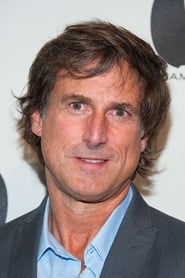 NameJohn RosengrantJobCharacter Designer
NameJohn RosengrantJobCharacter Designer -
 NameScott PattonJobLead Character Designer
NameScott PattonJobLead Character Designer -
 NameAkihito IkedaJobCharacter Designer
NameAkihito IkedaJobCharacter Designer -
 NameTheodore HainesJobCharacter Designer
NameTheodore HainesJobCharacter Designer -
 NameJosh HermanJobCharacter Designer
NameJosh HermanJobCharacter Designer -
 NameMichael OrnelazJobCharacter Designer
NameMichael OrnelazJobCharacter Designer -
 NameMichelle DevilleJobCharacter Designer
NameMichelle DevilleJobCharacter Designer -
 NameDawn DiningerJobCharacter Designer
NameDawn DiningerJobCharacter Designer -
 NameDavid CovarrubiasJobMechanical & Creature Designer
NameDavid CovarrubiasJobMechanical & Creature Designer -
 NameClint G. ReaganJobPre-Visualization Supervisor
NameClint G. ReaganJobPre-Visualization Supervisor -
 NameBrandon HarrJobVisual Effects Supervisor
NameBrandon HarrJobVisual Effects Supervisor -
 NameJeanette BrillJobVisual Effects Producer
NameJeanette BrillJobVisual Effects Producer -
 NameKaren SidlowJobContract Manager
NameKaren SidlowJobContract Manager -
 NameWilla YudellJobMusic Coordinator
NameWilla YudellJobMusic Coordinator -
 NameT Bone BurnettJobAdditional Music
NameT Bone BurnettJobAdditional Music -
 NameWilliam RossJobAdditional Music
NameWilliam RossJobAdditional Music -
 NameCurtis RoushJobMusic Editor
NameCurtis RoushJobMusic Editor -
 NameJim WeidmanJobMusic Editor
NameJim WeidmanJobMusic Editor -
 NameDavid OlsonJobMusic Editor
NameDavid OlsonJobMusic Editor -
 NameWilliam RossJobMusic Arranger
NameWilliam RossJobMusic Arranger -
 NameStuart Michael ThomasJobMusic Arranger
NameStuart Michael ThomasJobMusic Arranger -
 NameSven FaulconerJobMusic Arranger
NameSven FaulconerJobMusic Arranger -
 NameGavin GreenwayJobOrchestrator
NameGavin GreenwayJobOrchestrator -
 NameThomas BowesJobOrchestrator
NameThomas BowesJobOrchestrator -
 NameIsobel GriffithsJobOrchestrator
NameIsobel GriffithsJobOrchestrator -
 NameJo BuckleyJobOrchestrator
NameJo BuckleyJobOrchestrator -
 NameShawn MurphyJobScore Engineer
NameShawn MurphyJobScore Engineer -
 NameJerome LeroyJobMusic Programmer
NameJerome LeroyJobMusic Programmer -
 NameMatt WardJobMixing Engineer
NameMatt WardJobMixing Engineer -
 NameTerry HaskellJobAssistant Property Master
NameTerry HaskellJobAssistant Property Master -
 NameJohn PriebeJobRigging Gaffer
NameJohn PriebeJobRigging Gaffer -
 NameJohn Van Der ZalmJobCreature Technical Director
NameJohn Van Der ZalmJobCreature Technical Director -
 NameParis DownesJobCreature Technical Director
NameParis DownesJobCreature Technical Director -
 NameAndrew ButlerJobCreature Technical Director
NameAndrew ButlerJobCreature Technical Director -
 NameTim MackintoshJobCreature Technical Director
NameTim MackintoshJobCreature Technical Director -
 NameCatalin NiculescuJobCreature Technical Director
NameCatalin NiculescuJobCreature Technical Director -
 NameNandan PhansalkarJobCreature Technical Director
NameNandan PhansalkarJobCreature Technical Director -
 NameJeremy YeokhooJobCreature Technical Director
NameJeremy YeokhooJobCreature Technical Director -
 NameCurtis A. MillerJobProduction Supervisor
NameCurtis A. MillerJobProduction Supervisor -
 NameLafleche DumaisJobCG Supervisor
NameLafleche DumaisJobCG Supervisor -
 NameNicolas-Alexandre NoelJobCG Supervisor
NameNicolas-Alexandre NoelJobCG Supervisor -
 NameMary StuartJobVisual Effects Producer
NameMary StuartJobVisual Effects Producer -
 NameMichael KellerJobSound Editor
NameMichael KellerJobSound Editor -
 NameJulie StarkJobCompositor
NameJulie StarkJobCompositor -
 NameSteve GravesJobCG Animator
NameSteve GravesJobCG Animator -
 NameRichard KingJobStunts
NameRichard KingJobStunts -
 NameJackson SpidellJobStunts
NameJackson SpidellJobStunts -
 NameBren CookJobAger/Dyer
NameBren CookJobAger/Dyer -
 NameJason ZimmermanJobCompositing Supervisor
NameJason ZimmermanJobCompositing Supervisor -
 NameSam BakerJobAnimation
NameSam BakerJobAnimation -
 NameMike Prestwood SmithJobSound Re-Recording Mixer
NameMike Prestwood SmithJobSound Re-Recording Mixer -
 NameNathaniel De'LineadeusJobSpecial Effects Makeup Artist
NameNathaniel De'LineadeusJobSpecial Effects Makeup Artist -
 NameMatthew LambJobPropmaker
NameMatthew LambJobPropmaker -
 NameJeff L. DeistJobCharacter Designer
NameJeff L. DeistJobCharacter Designer -
 NameJonathan SimsJobCompositor
NameJonathan SimsJobCompositor
-
Trailer
-
Trailer
-
Trailer
-
Trailer
-
Trailer
-
Trailer
-
Clip
-
Clip
-
Clip
-
Clip
-
Clip
-
Clip
-
Clip
-
Clip
-
Clip
-
Clip
-
Clip
-
Clip
-
Clip
-
Clip
-
Clip
-
Clip
-
Clip
-
Teaser
-
Teaser
-
Teaser
-
Teaser
-
Teaser
-
Featurette
-
Featurette
-
Featurette
-
Featurette
-
Featurette
-
Featurette
-
Featurette
-
Featurette
-
Featurette
-
Featurette












